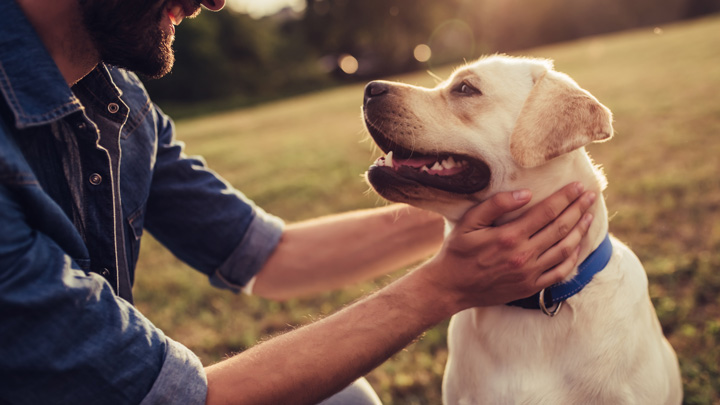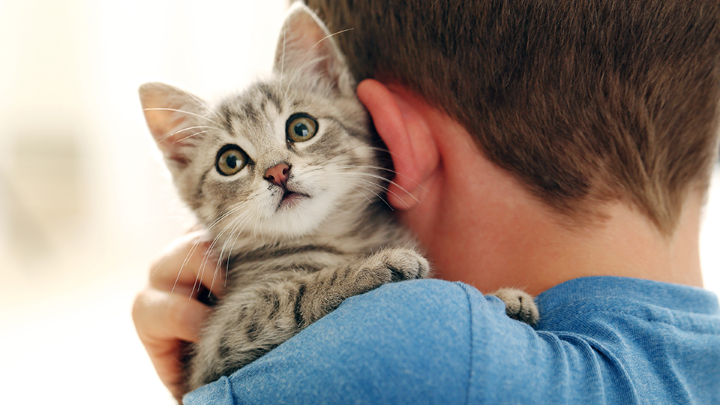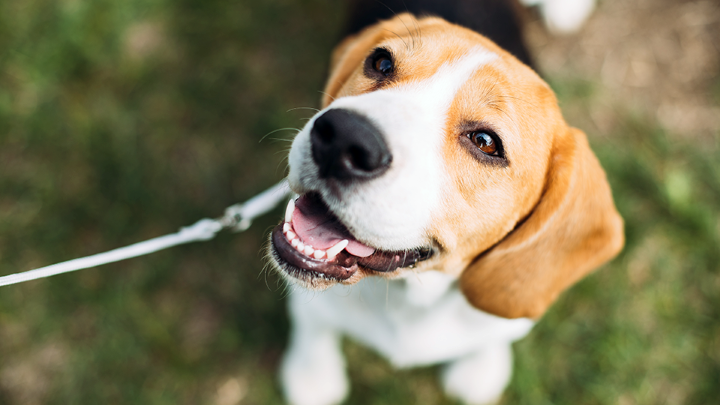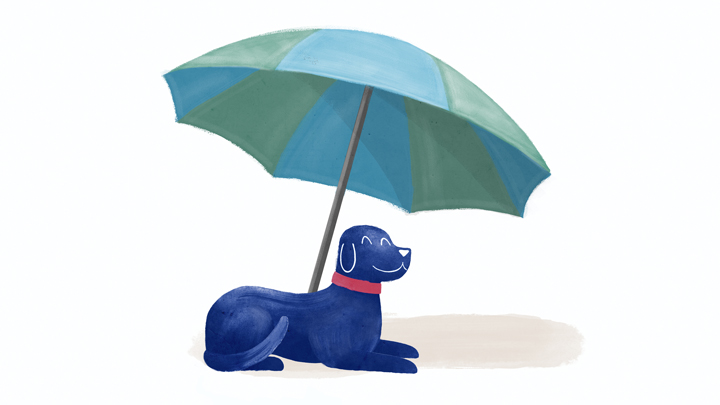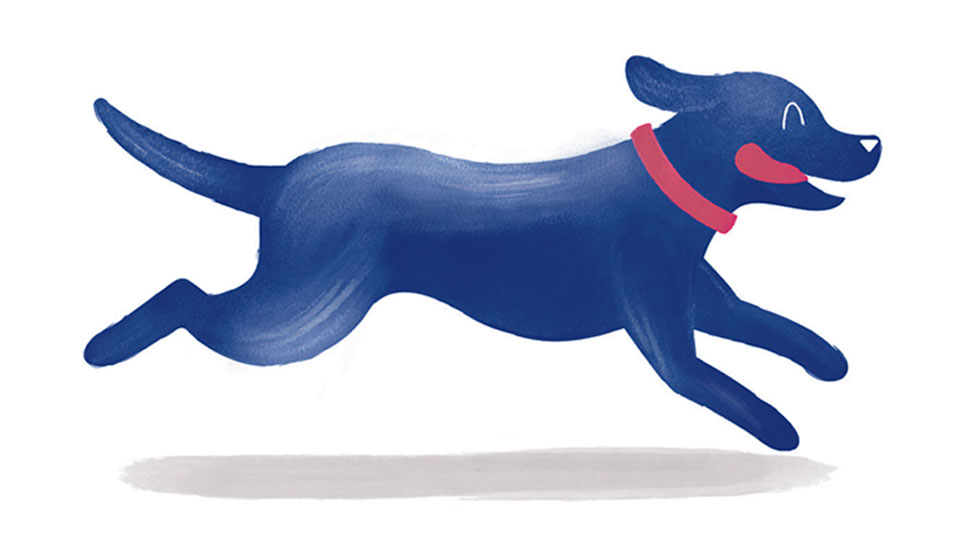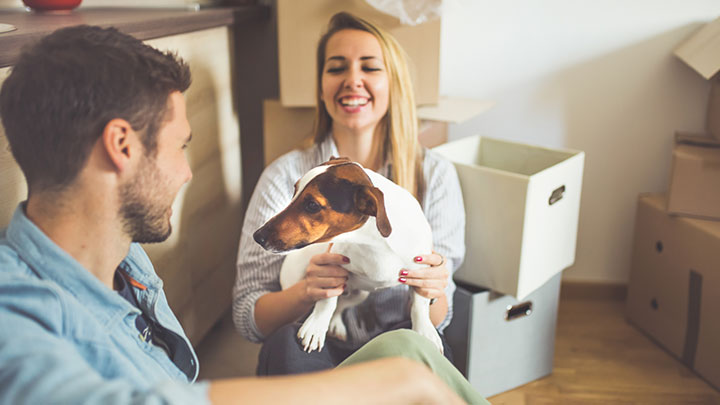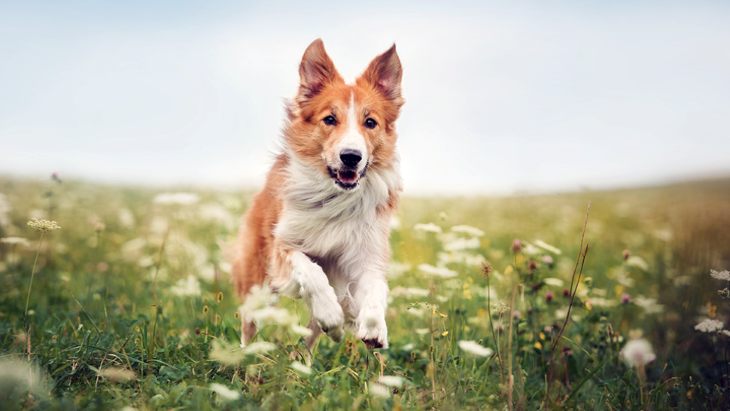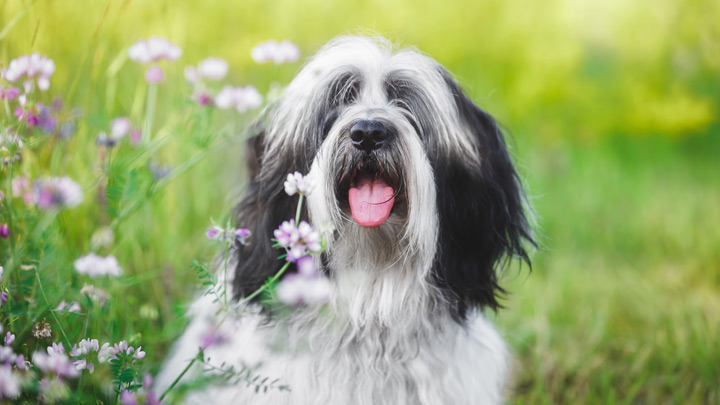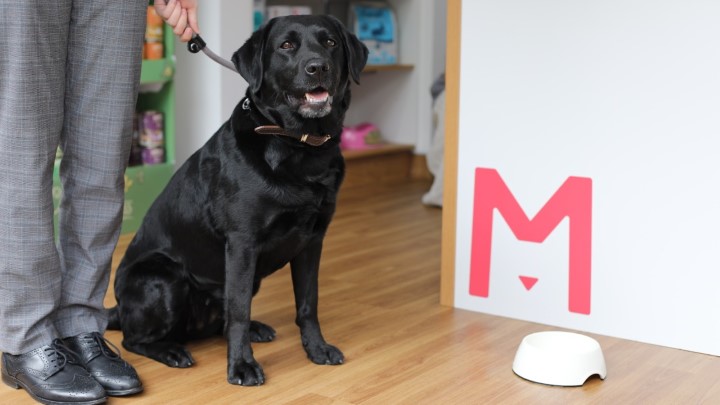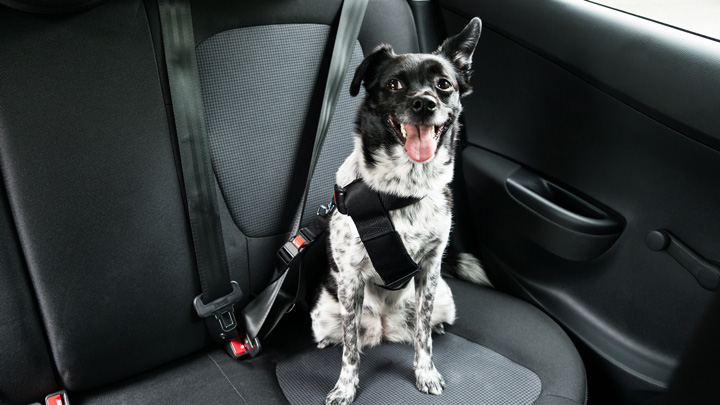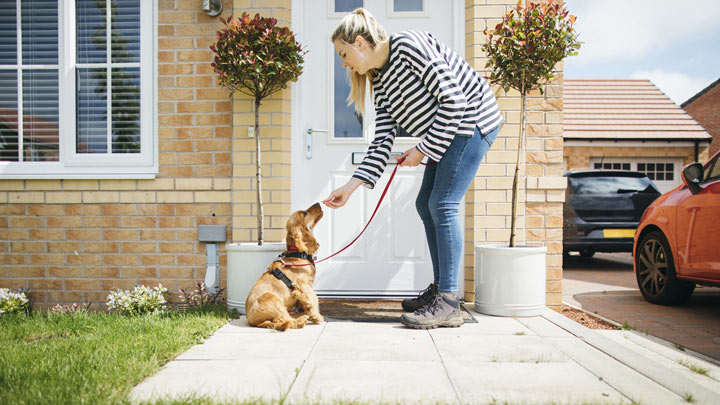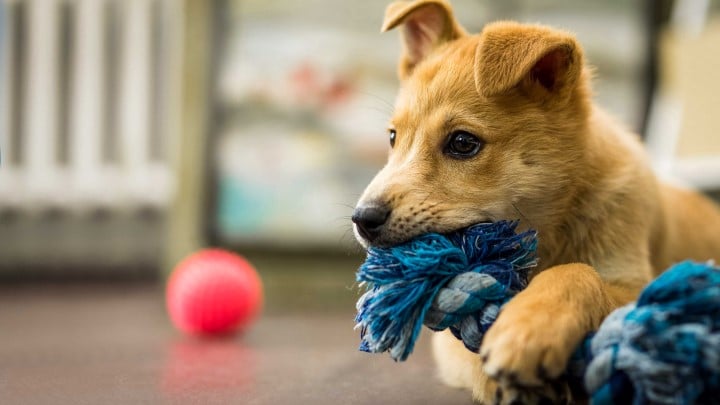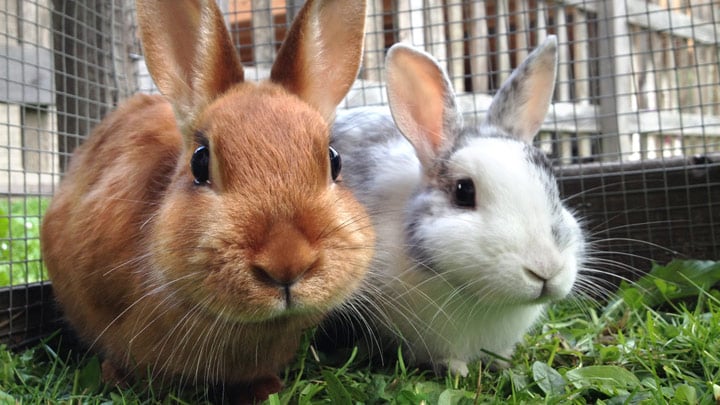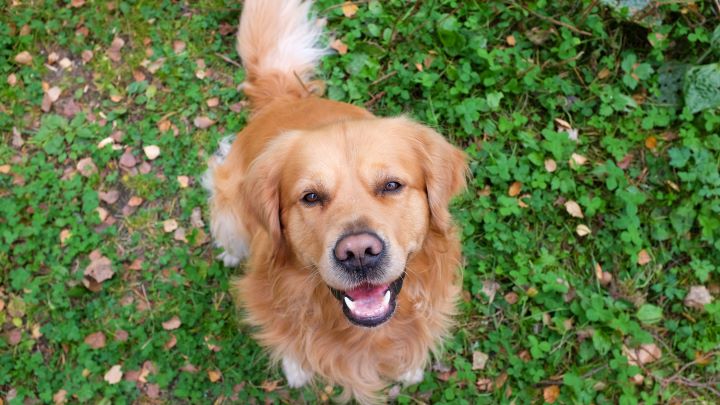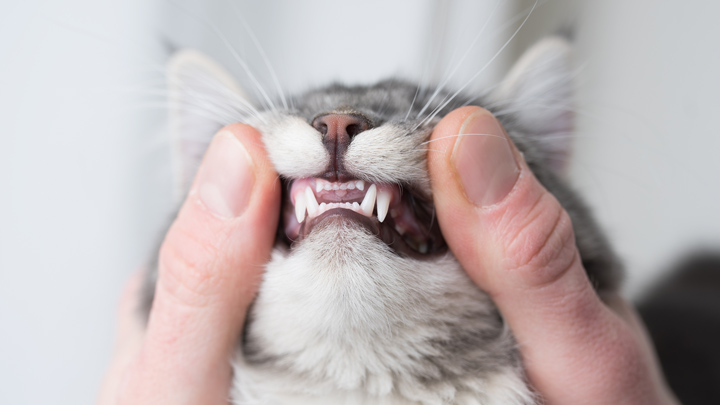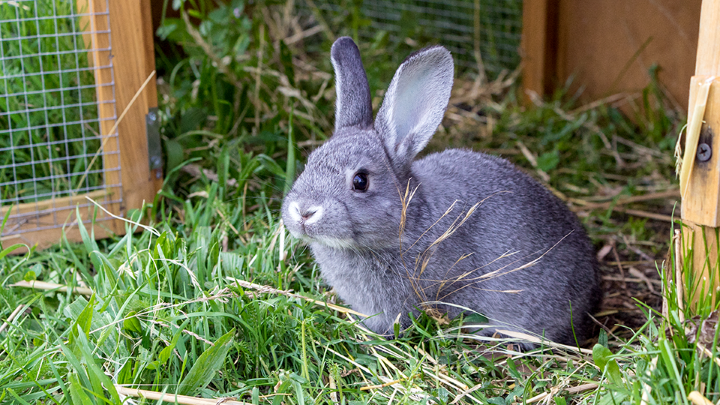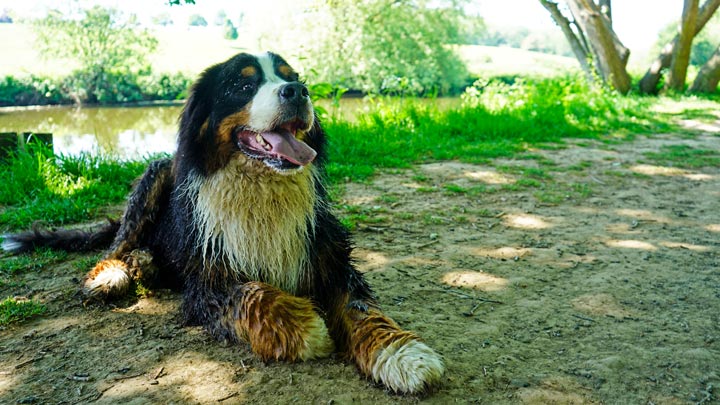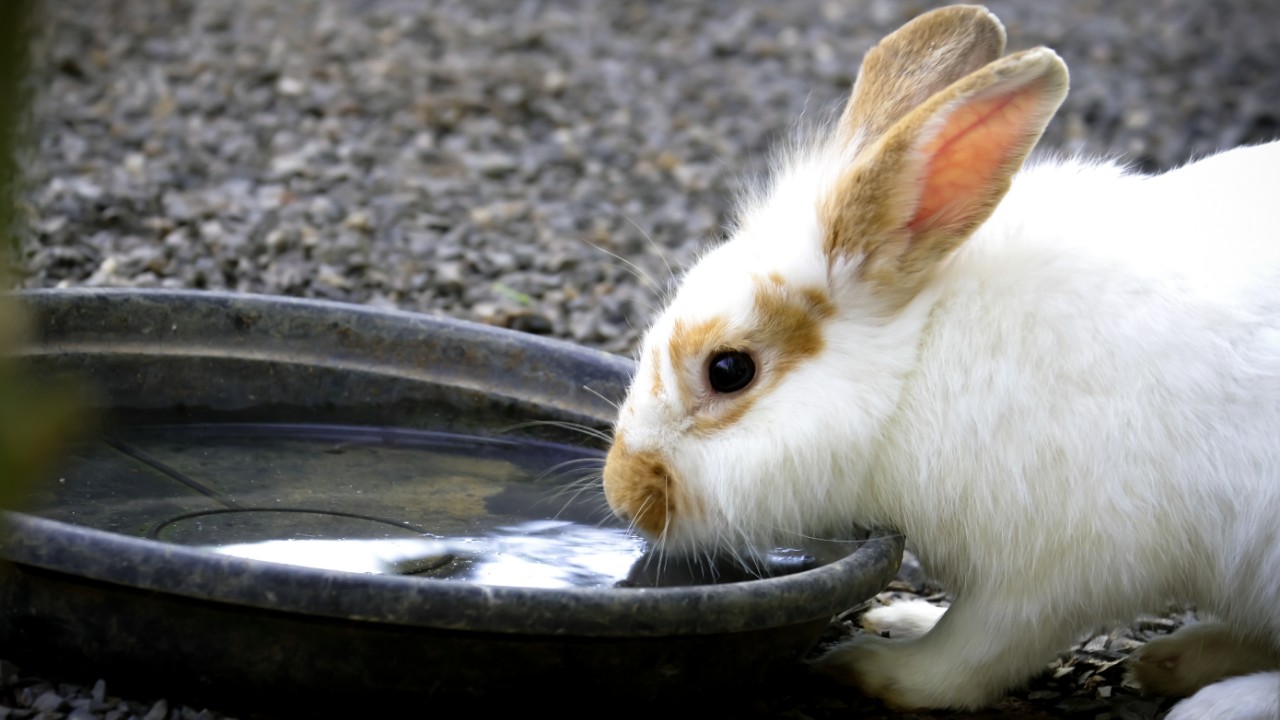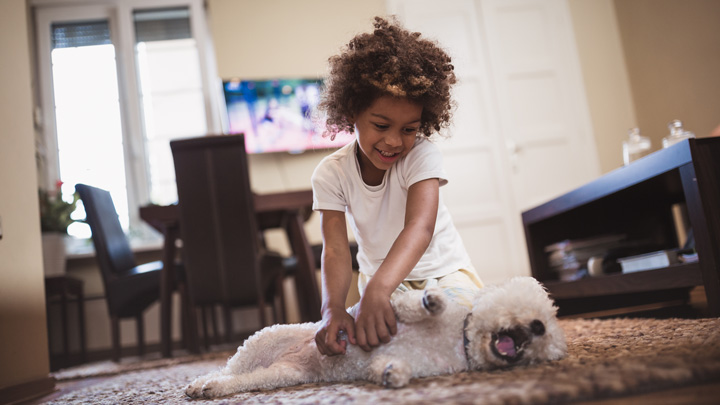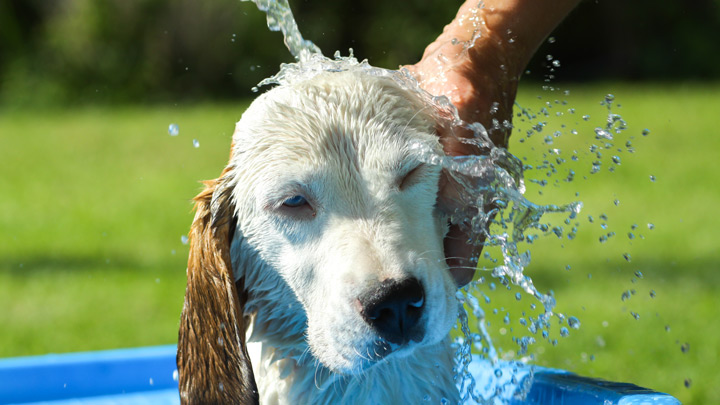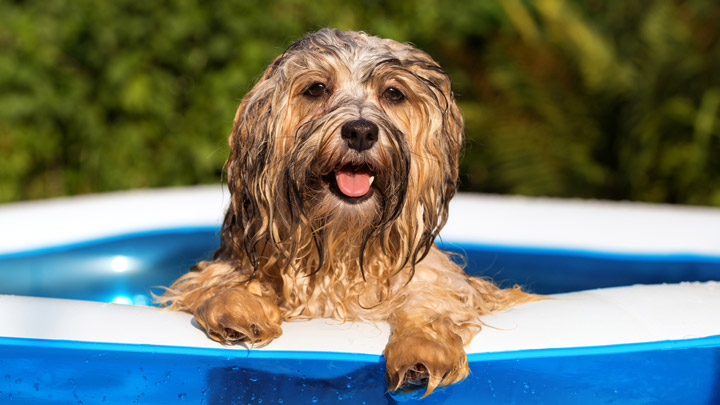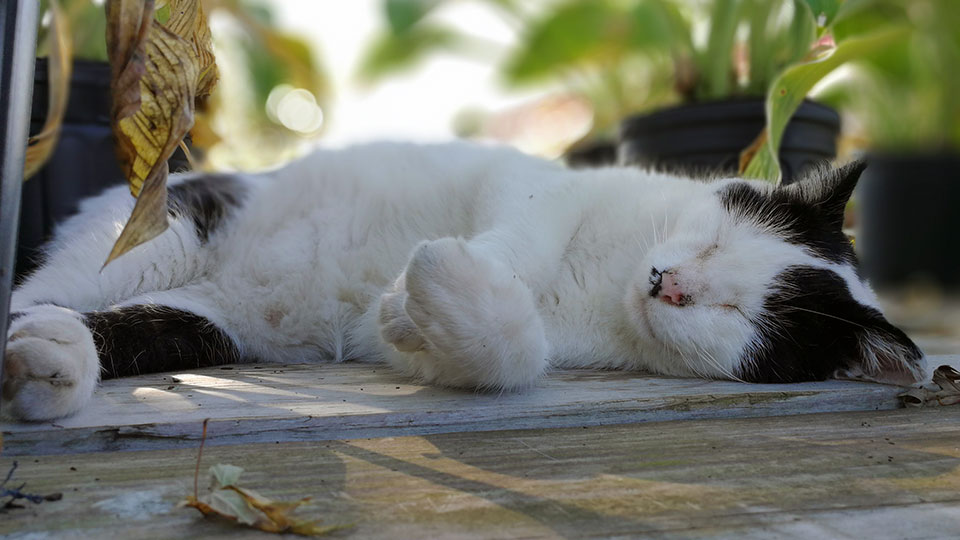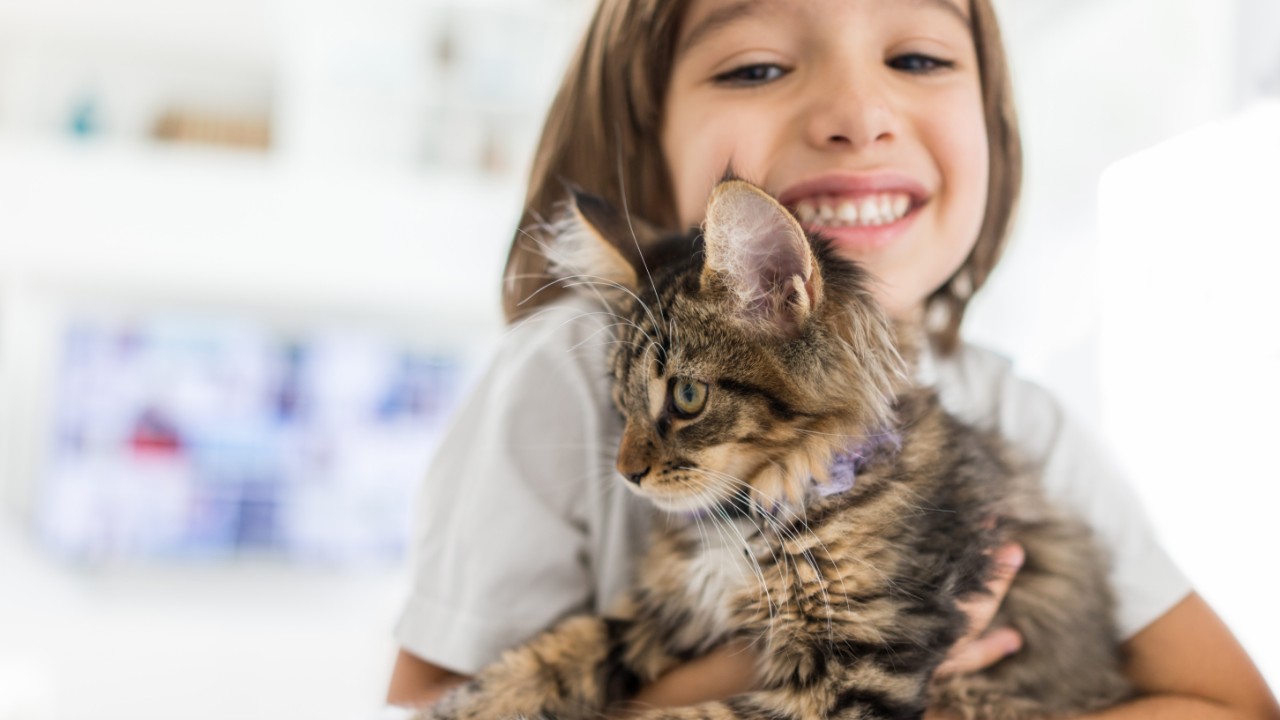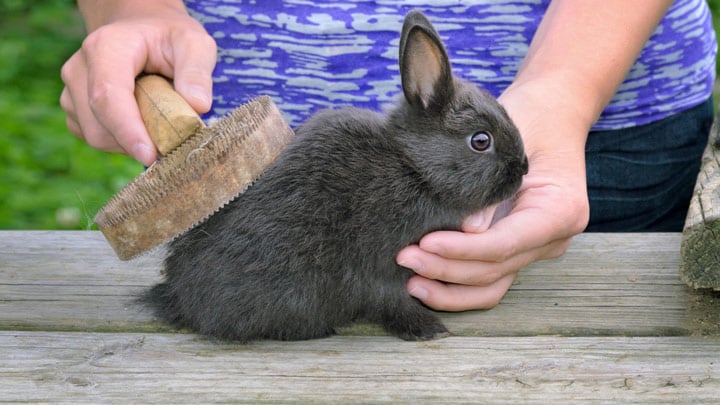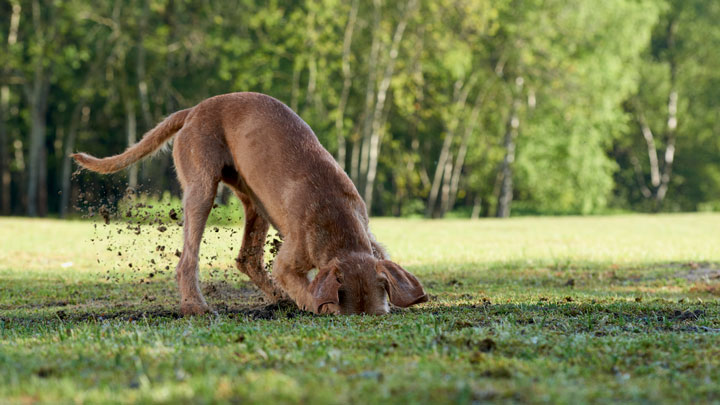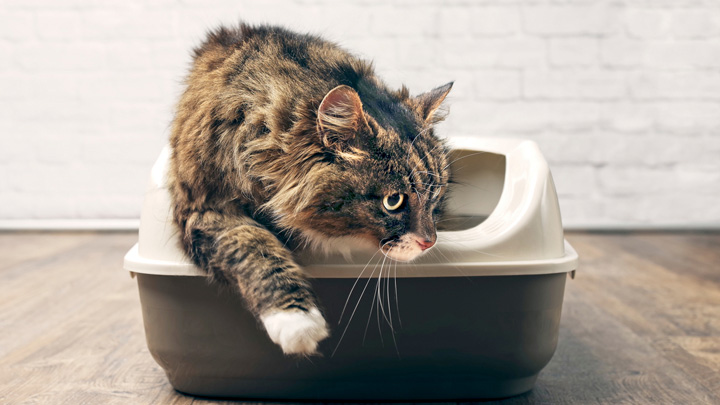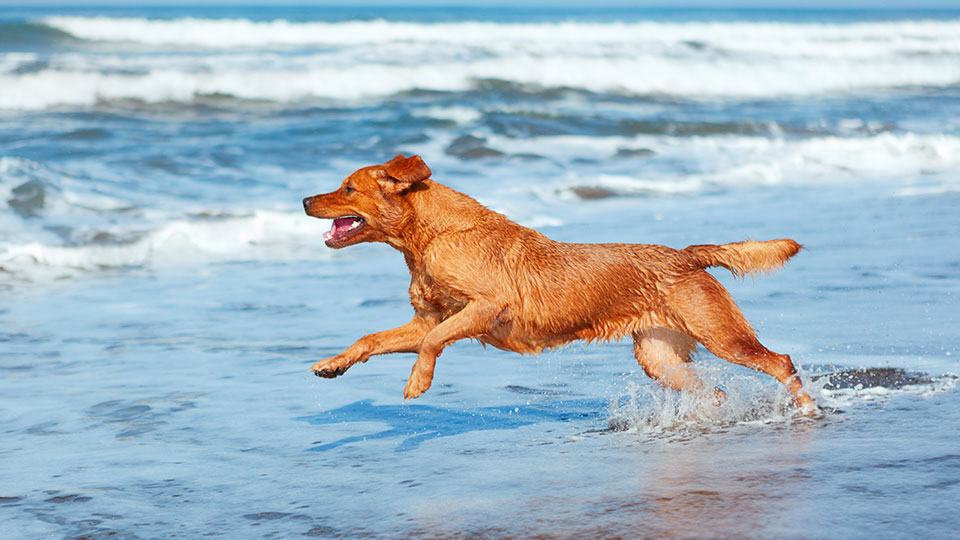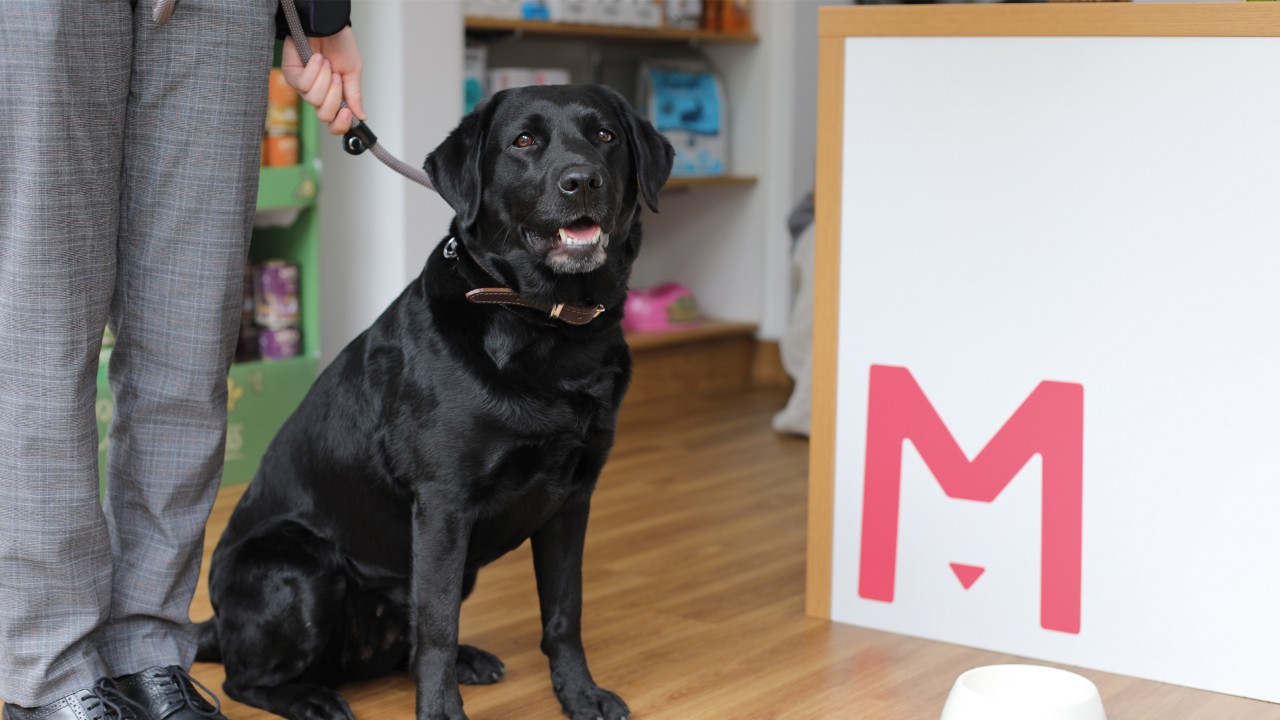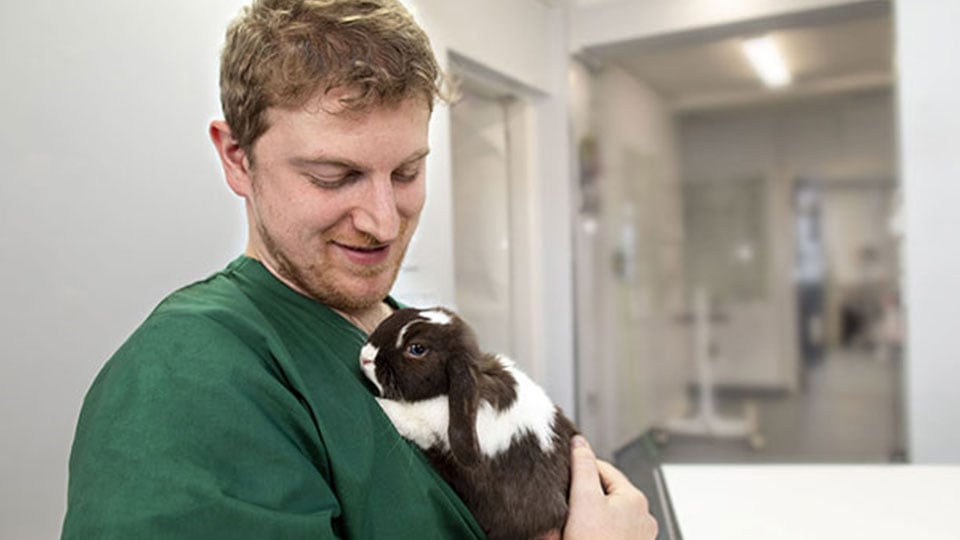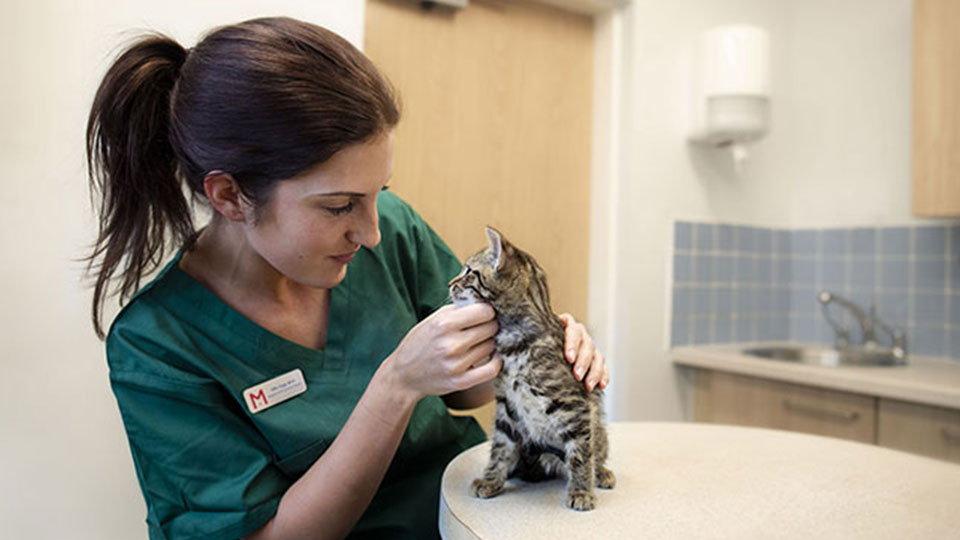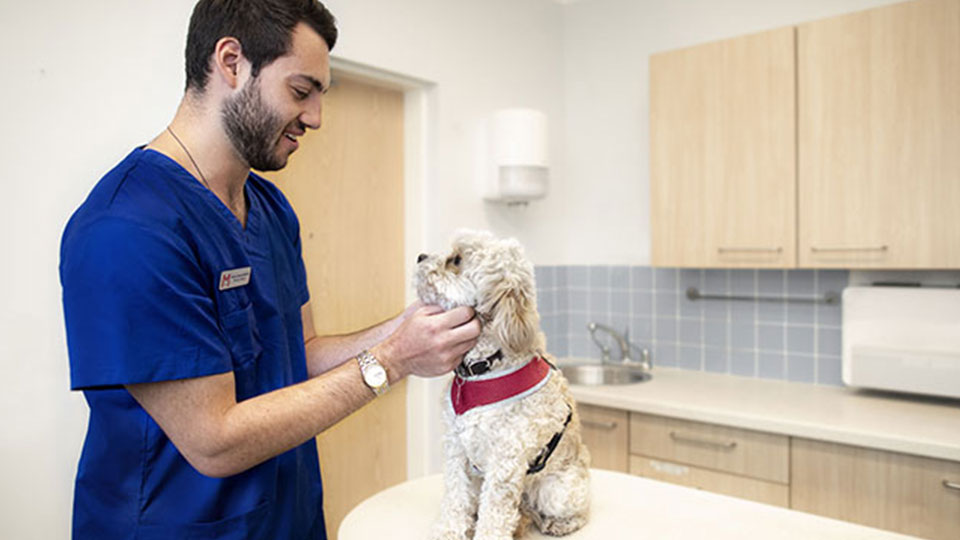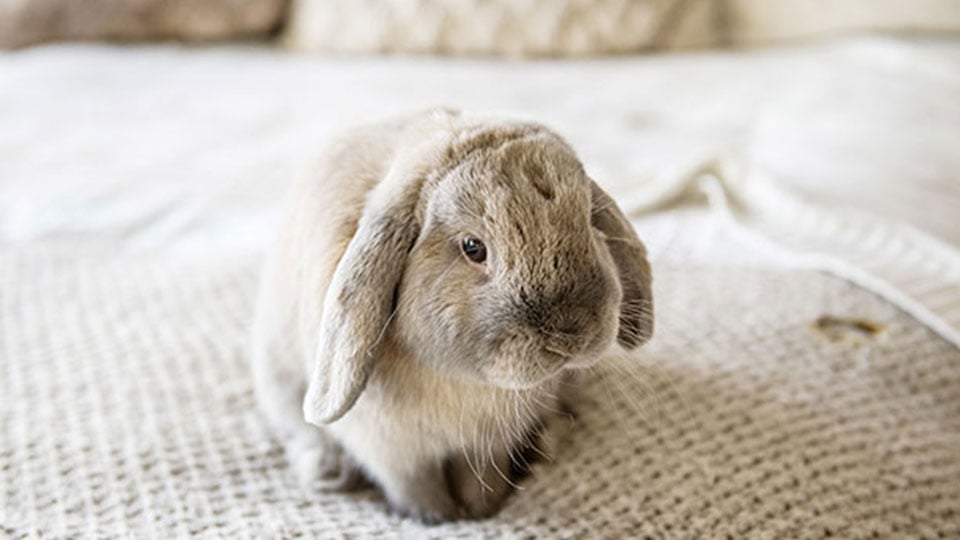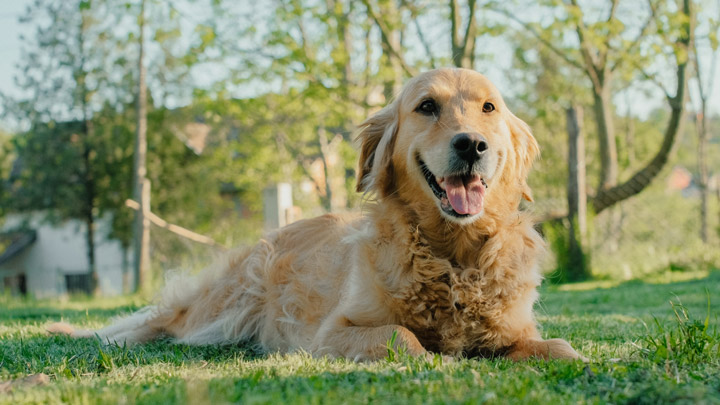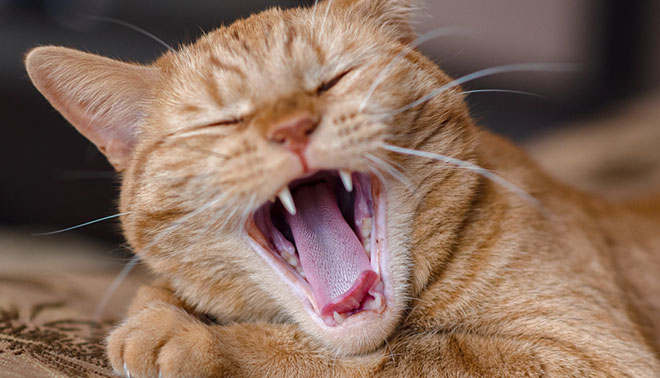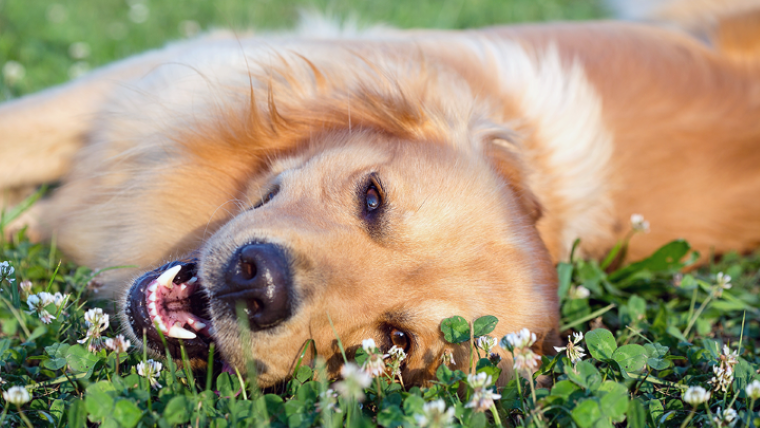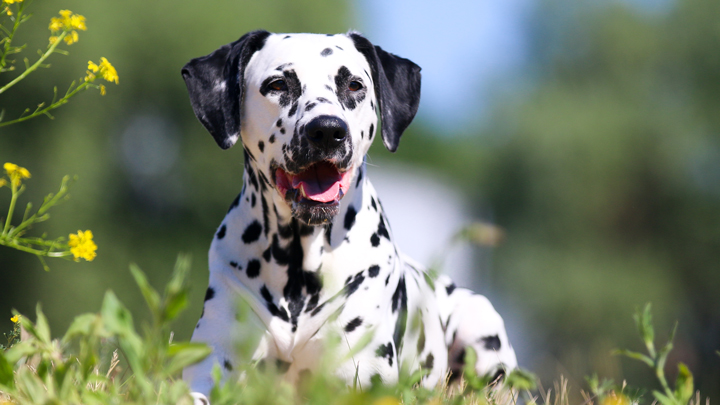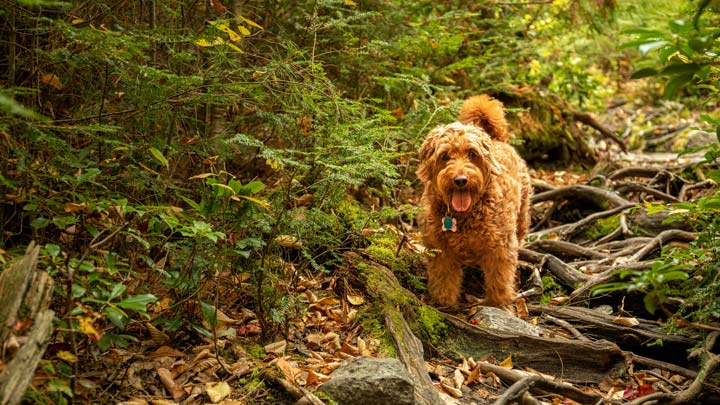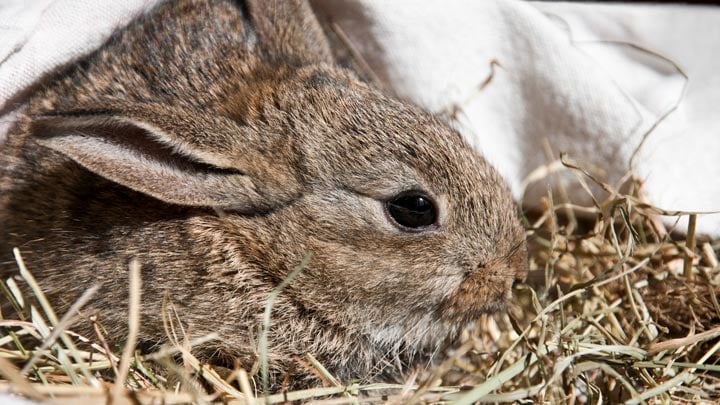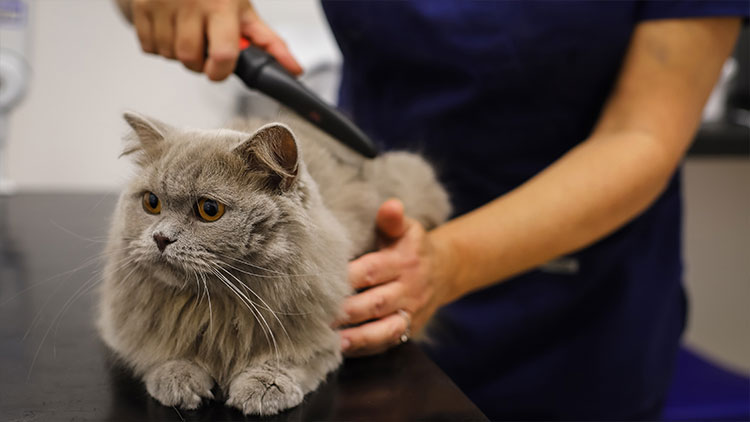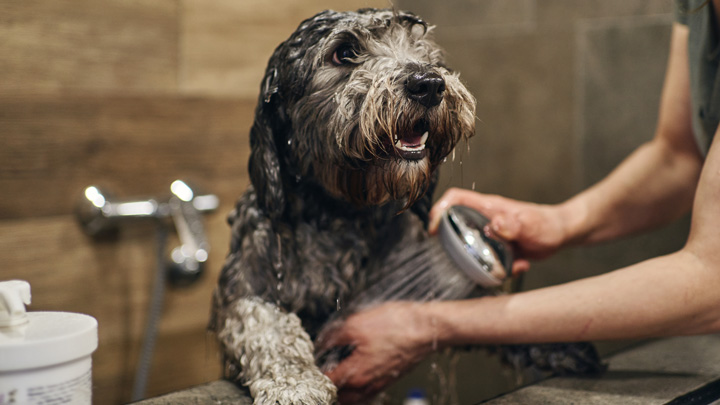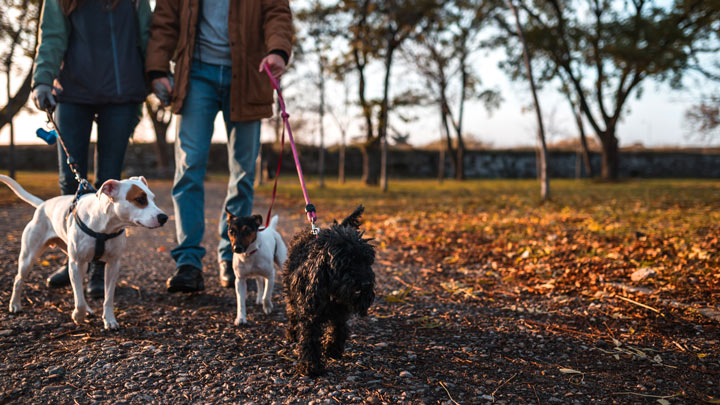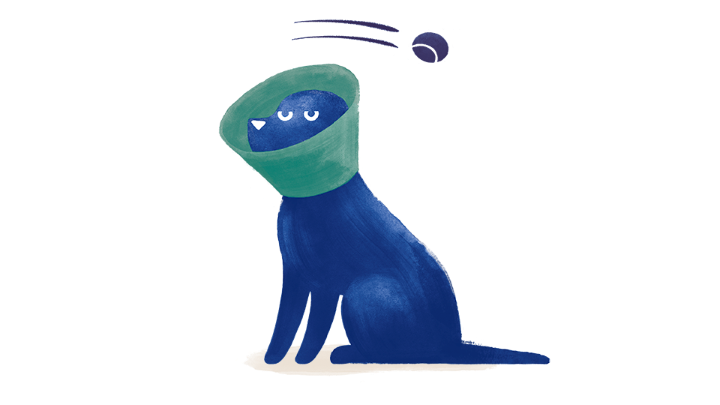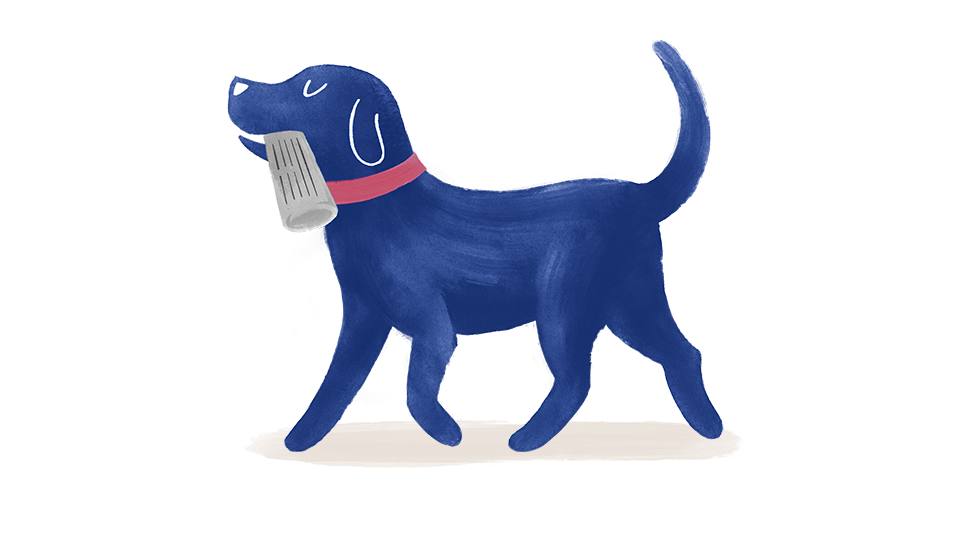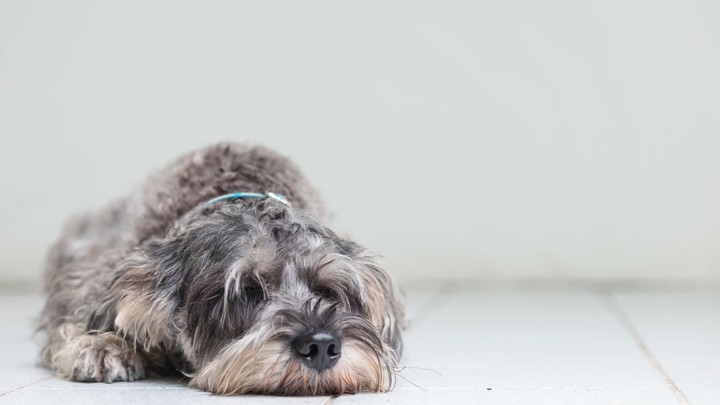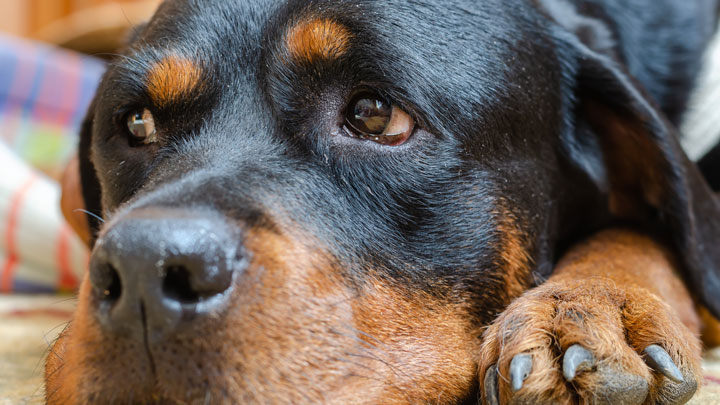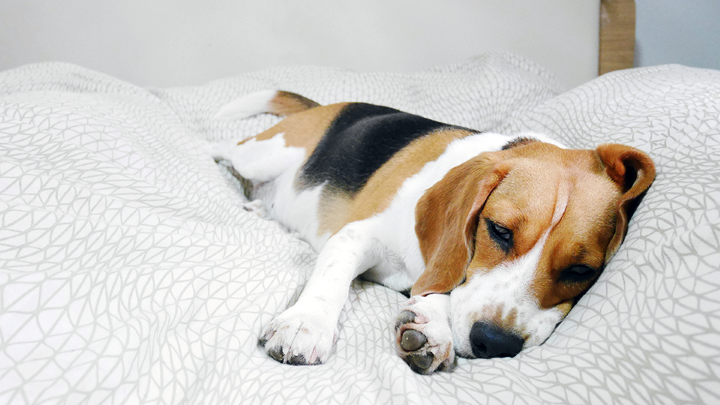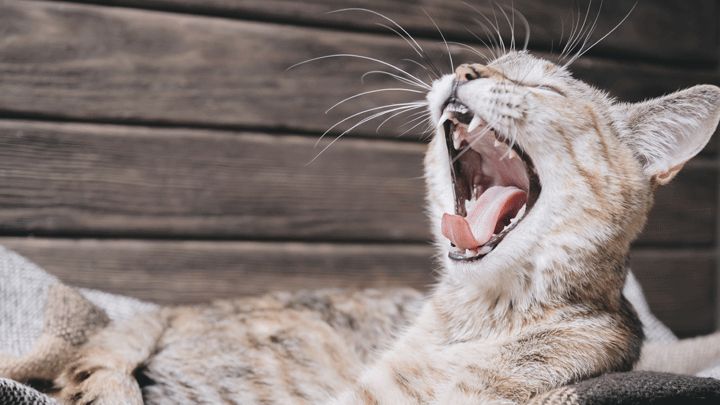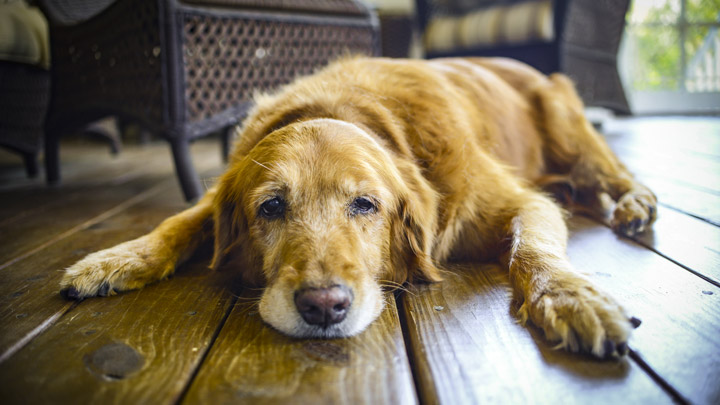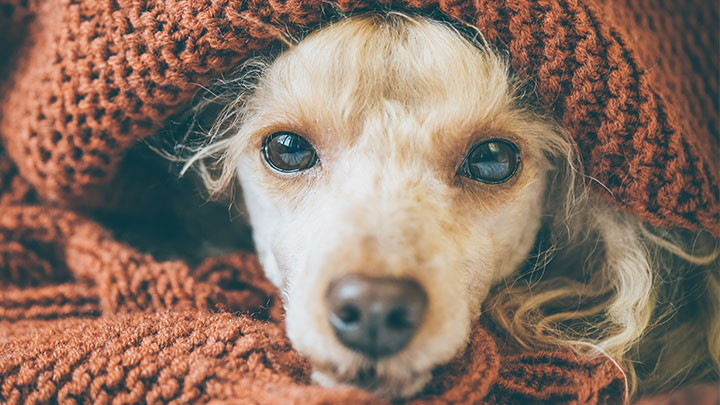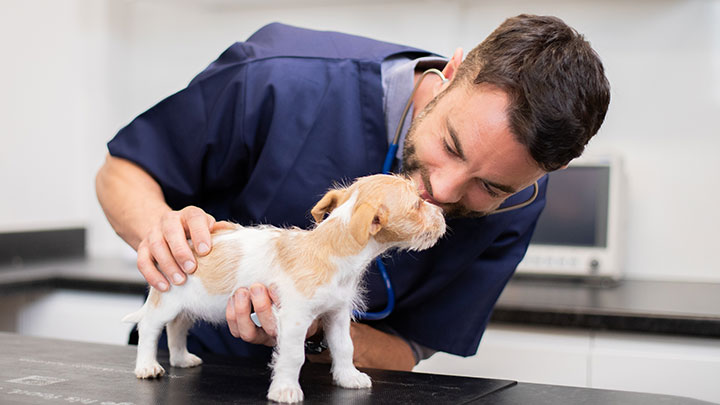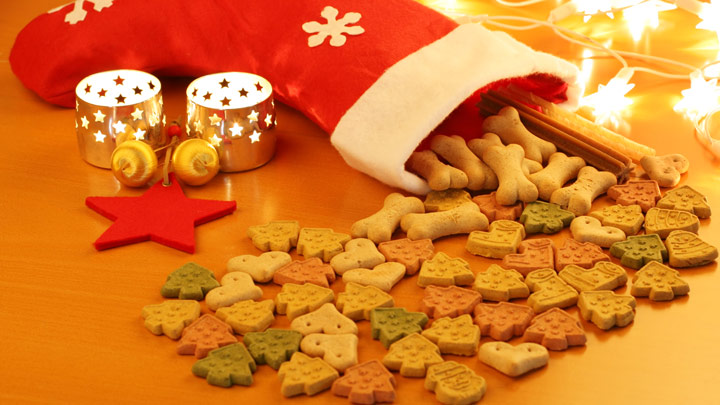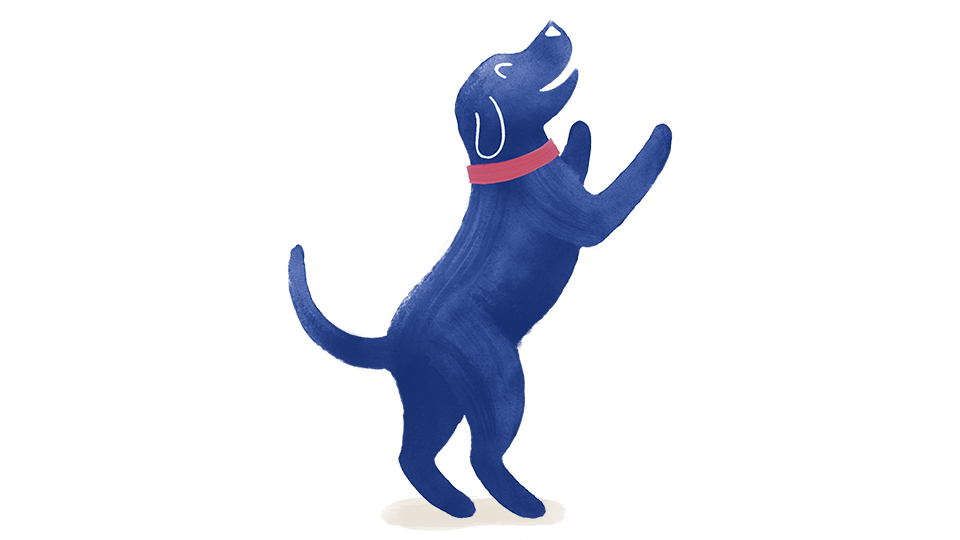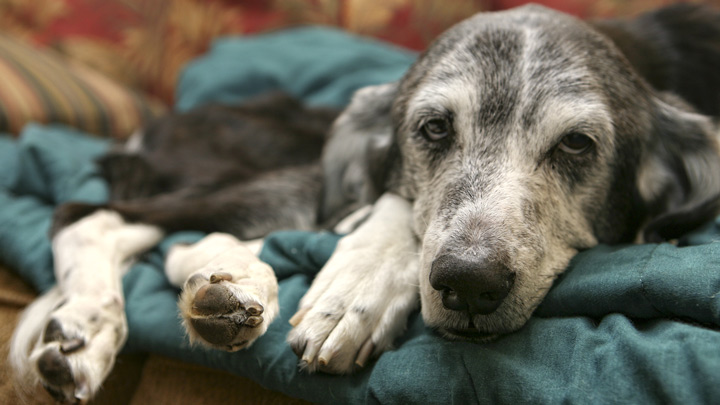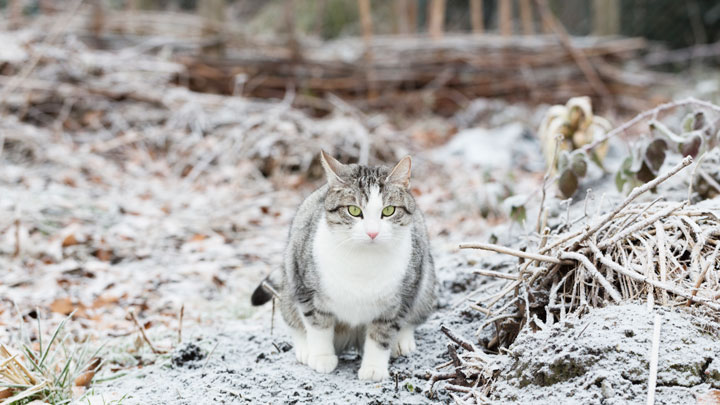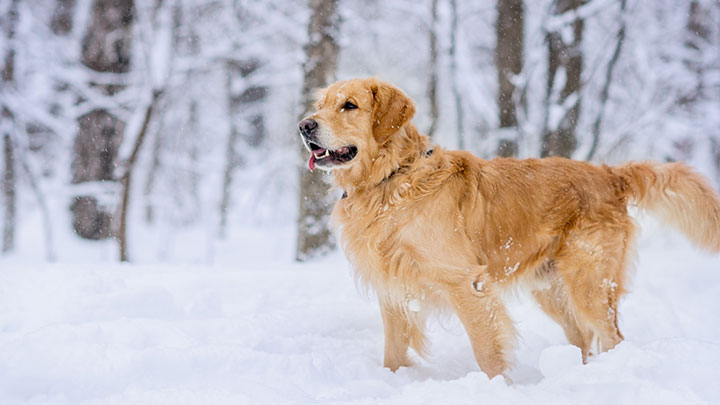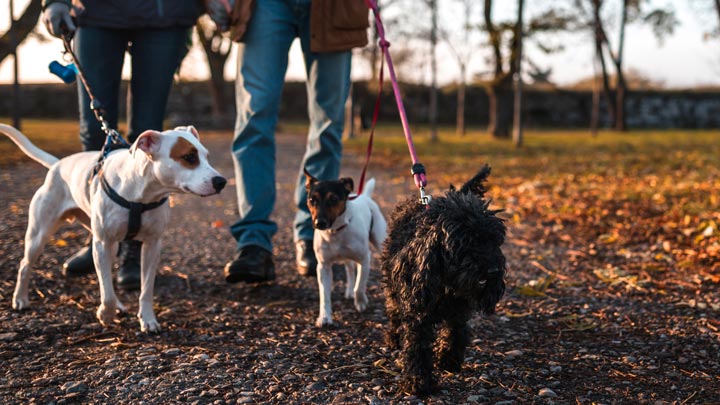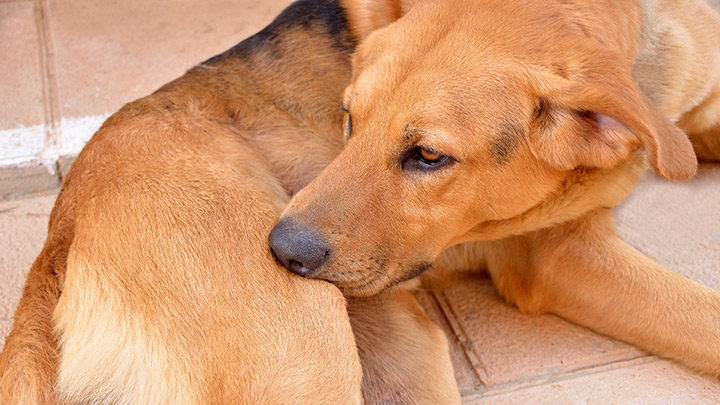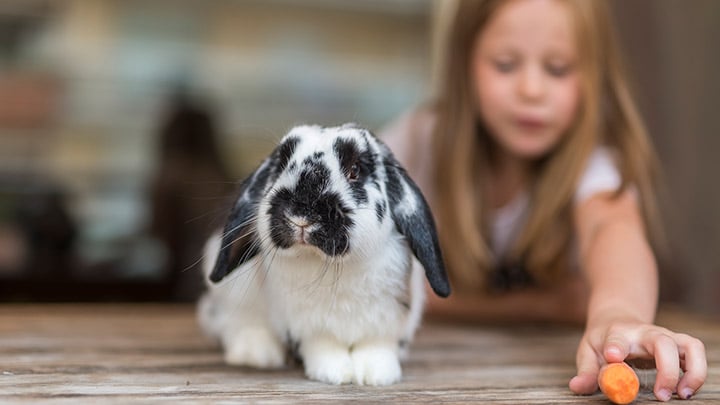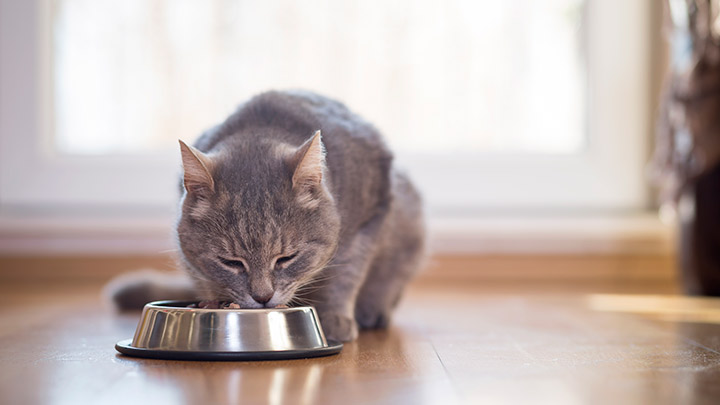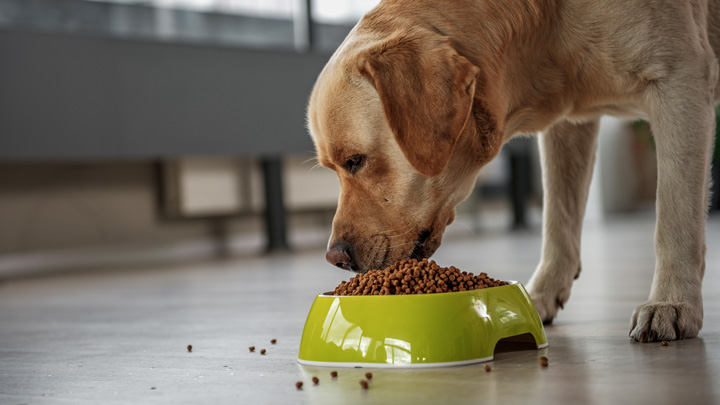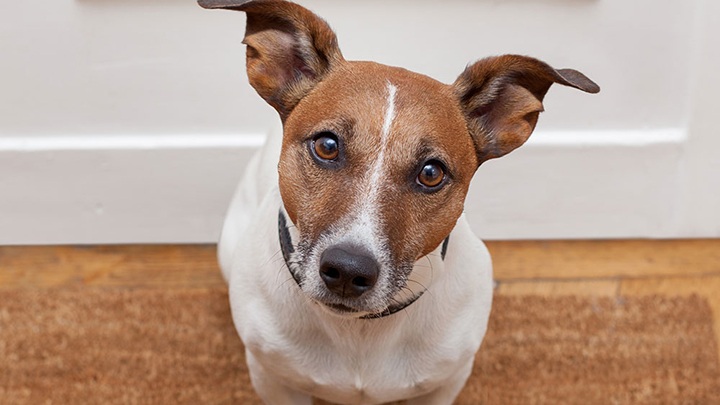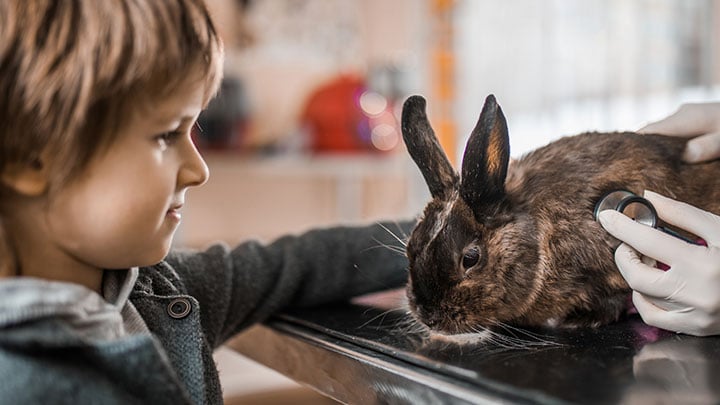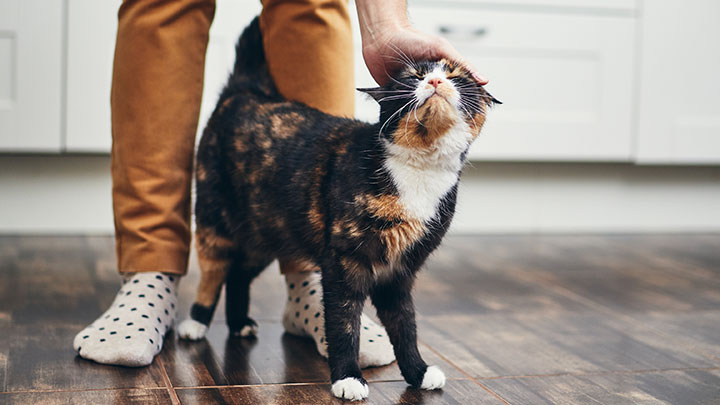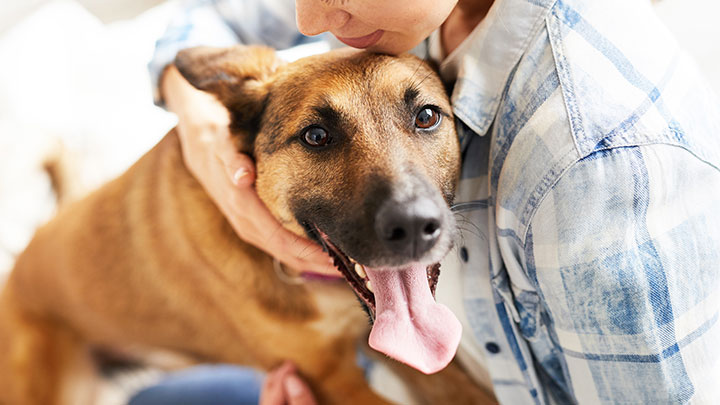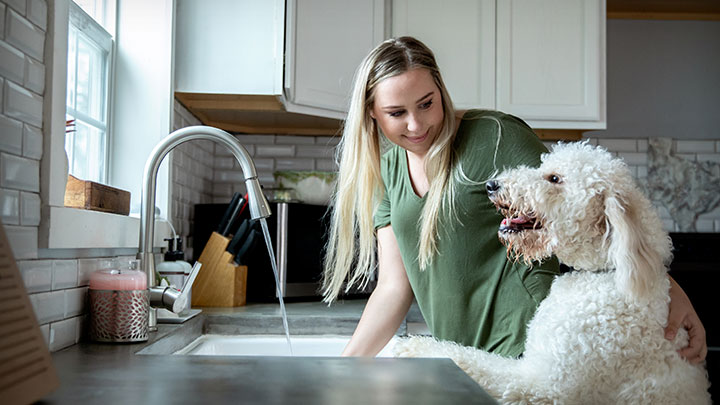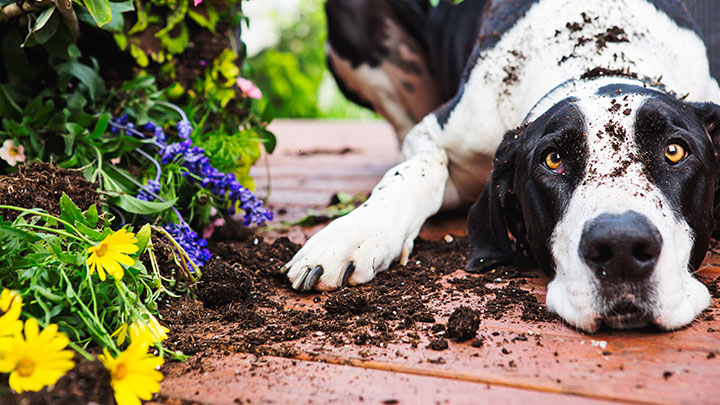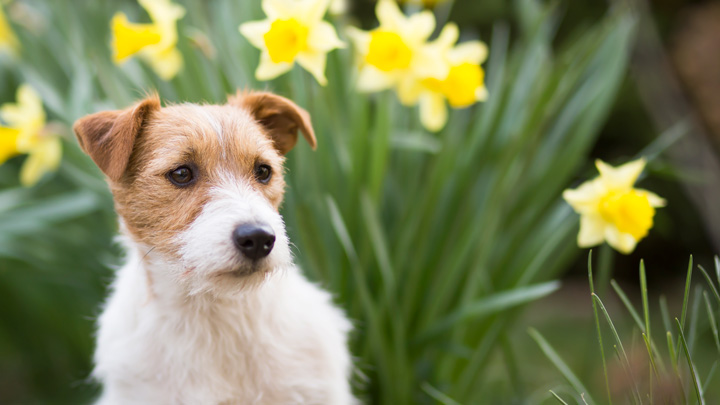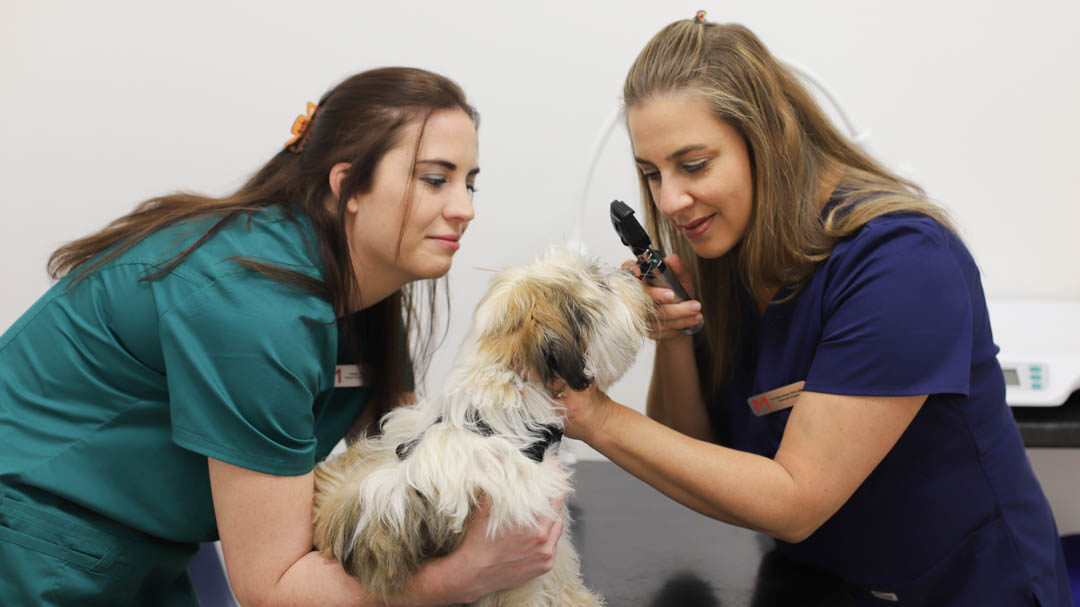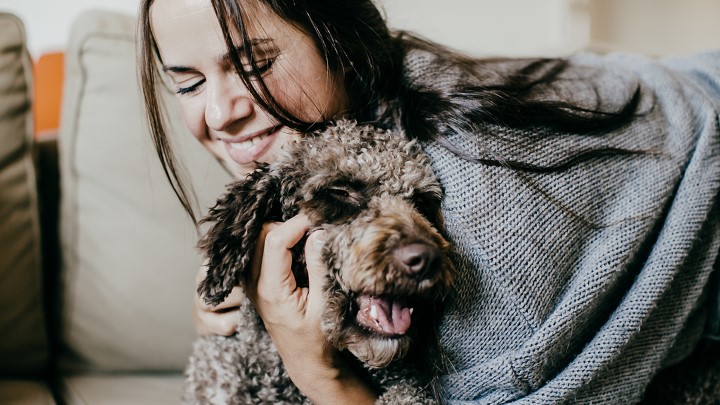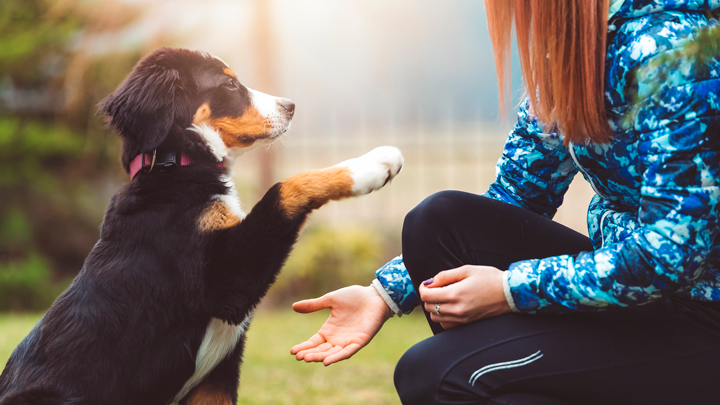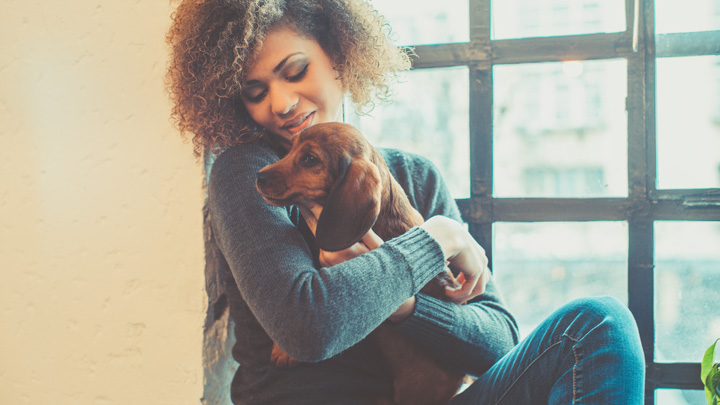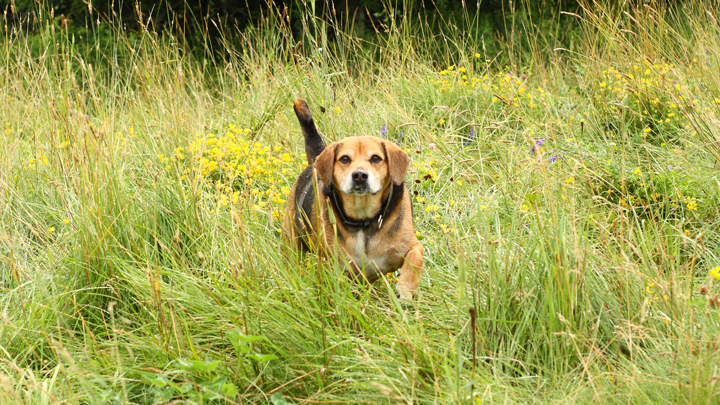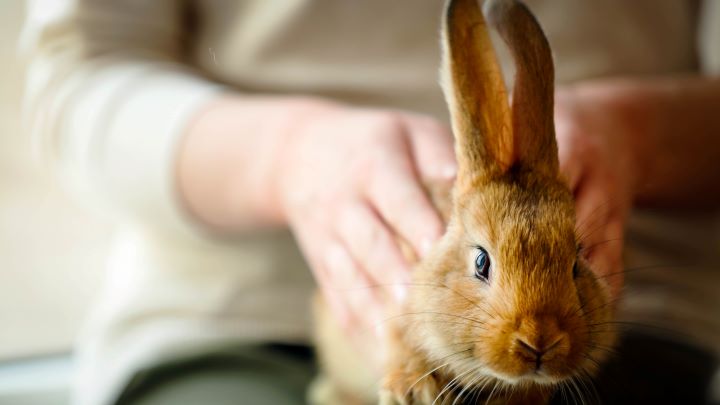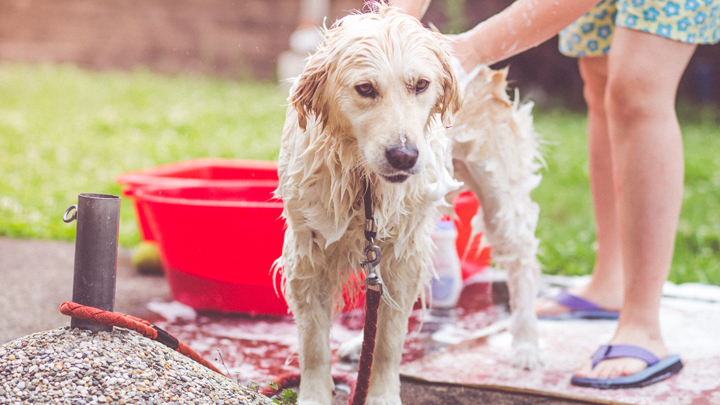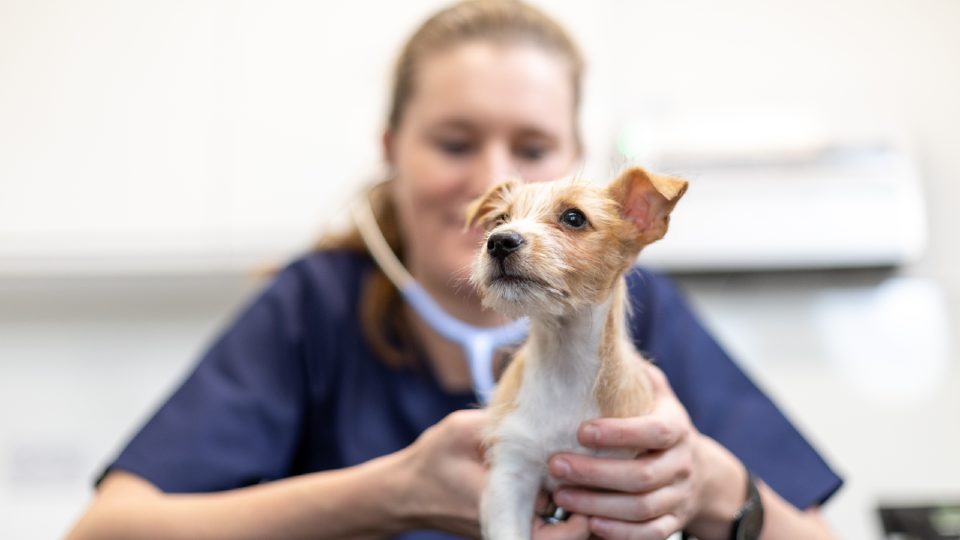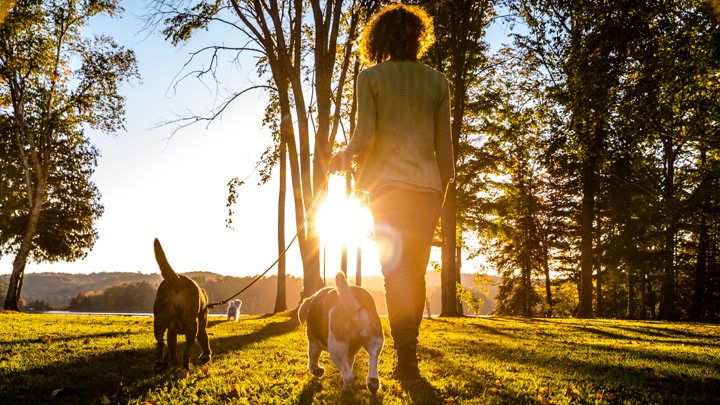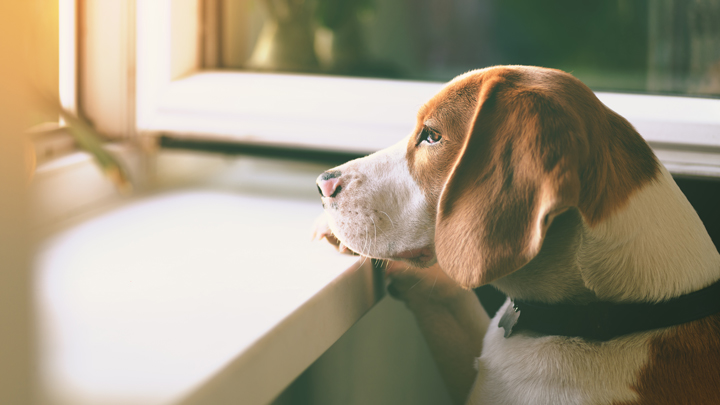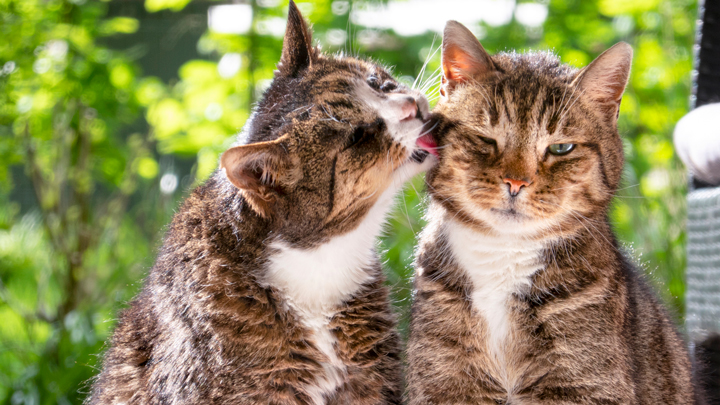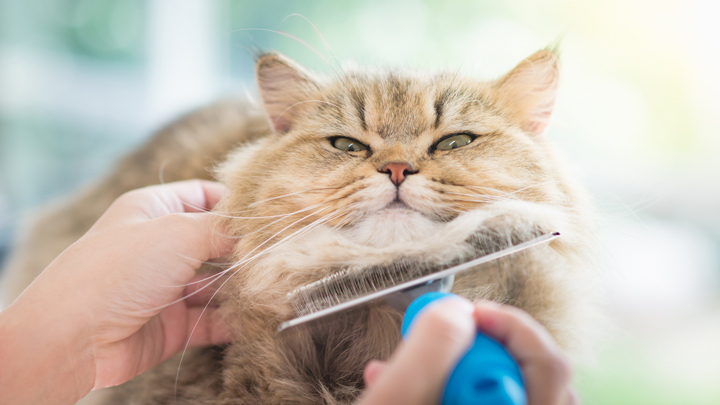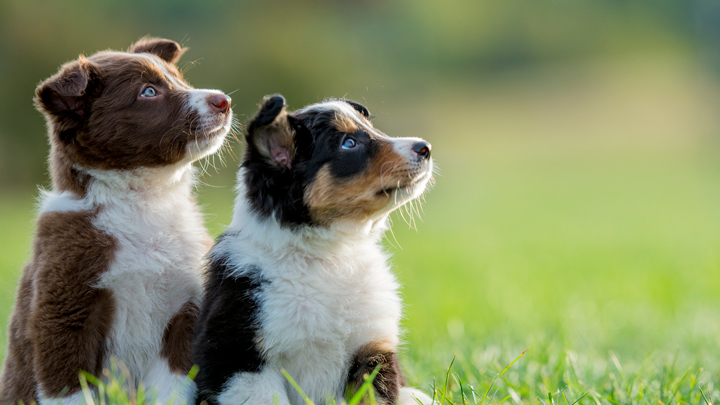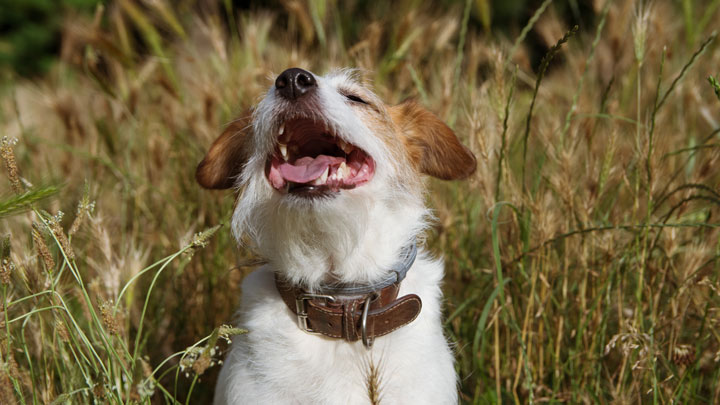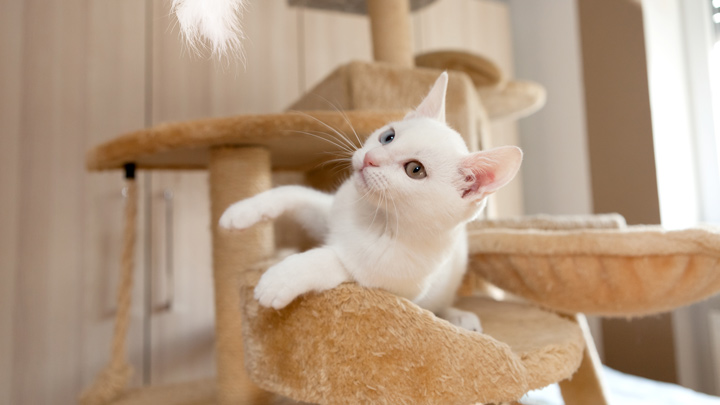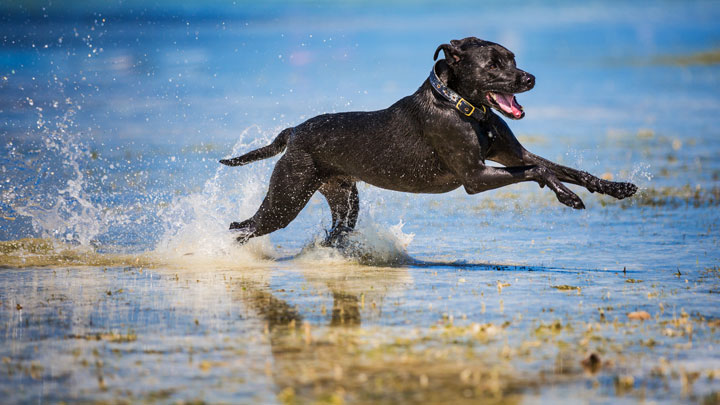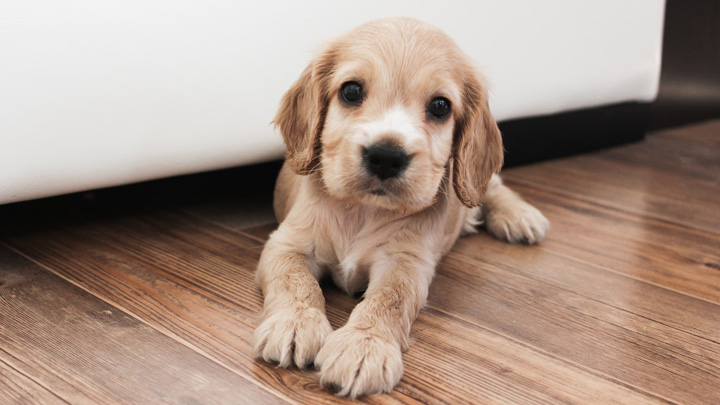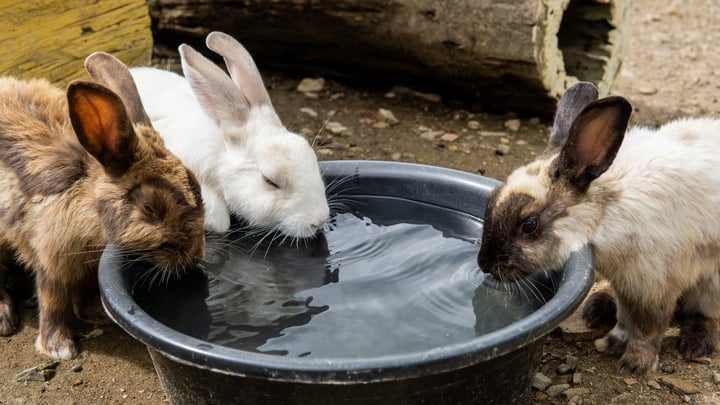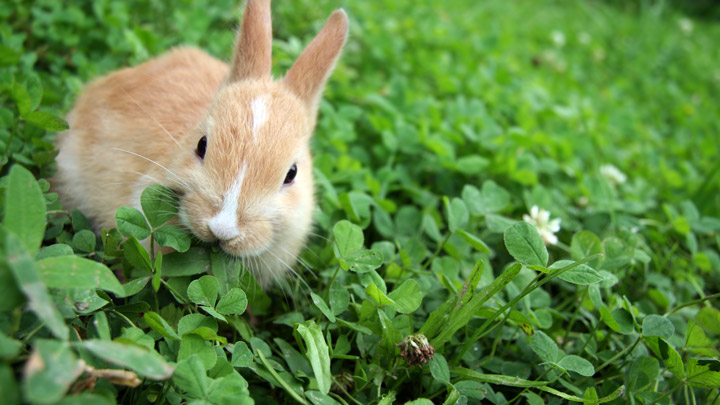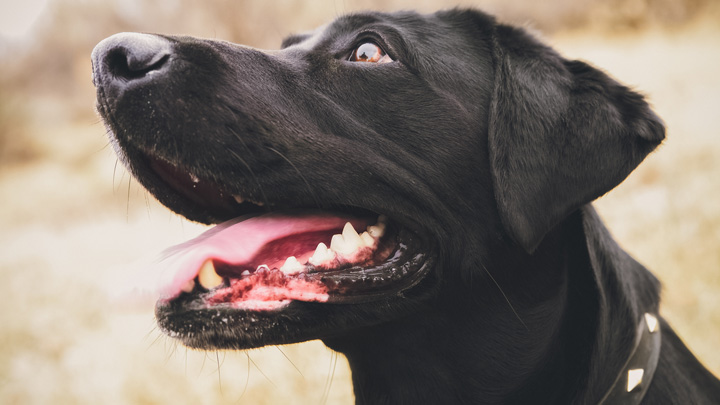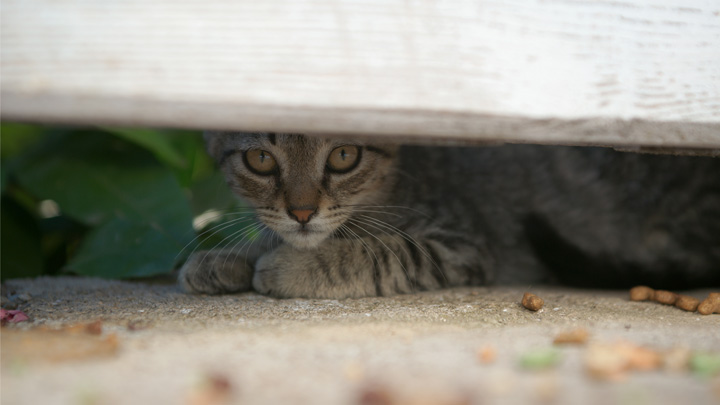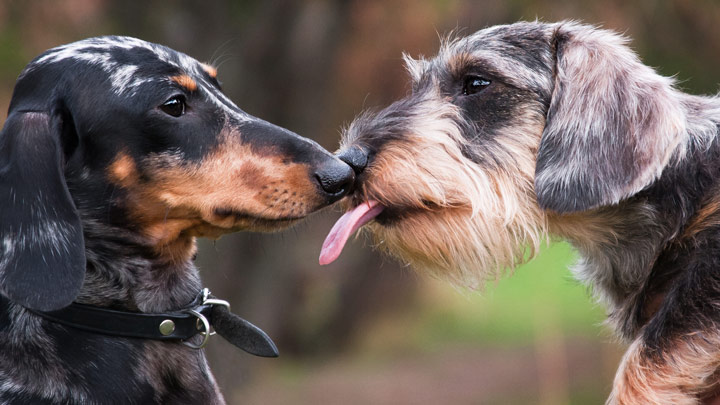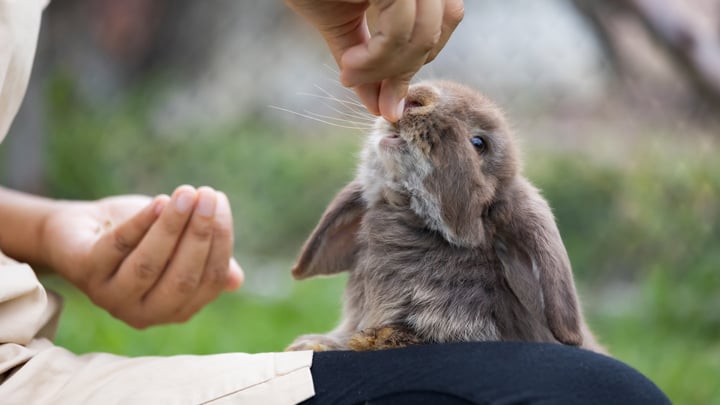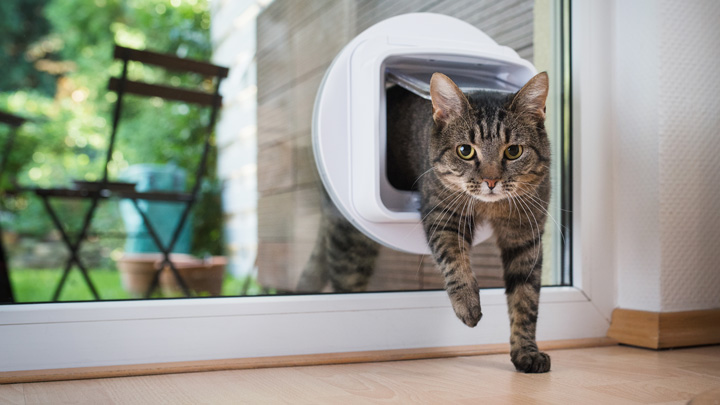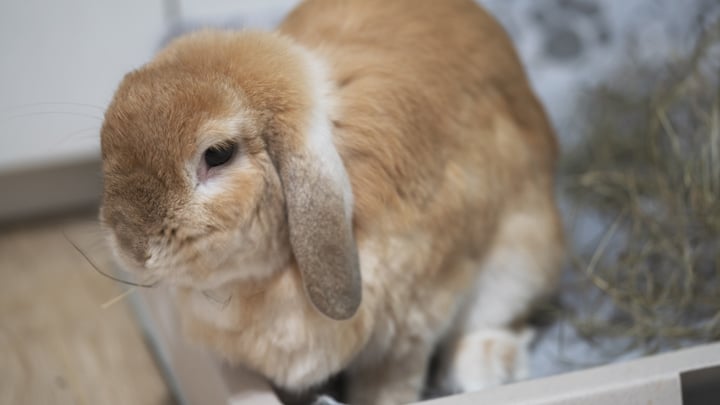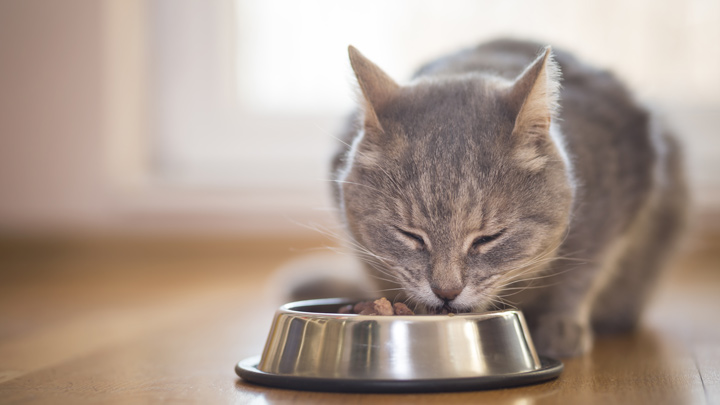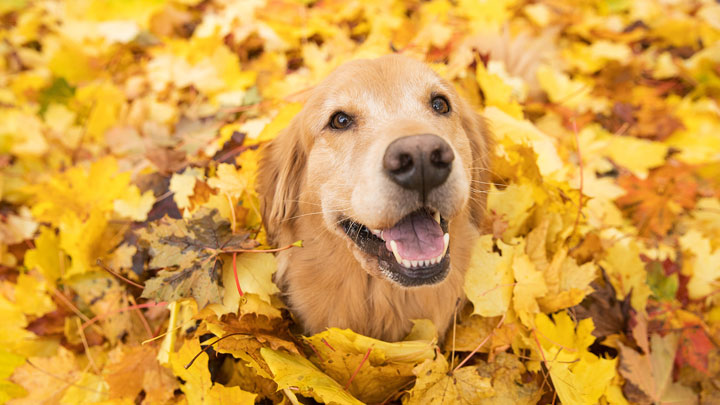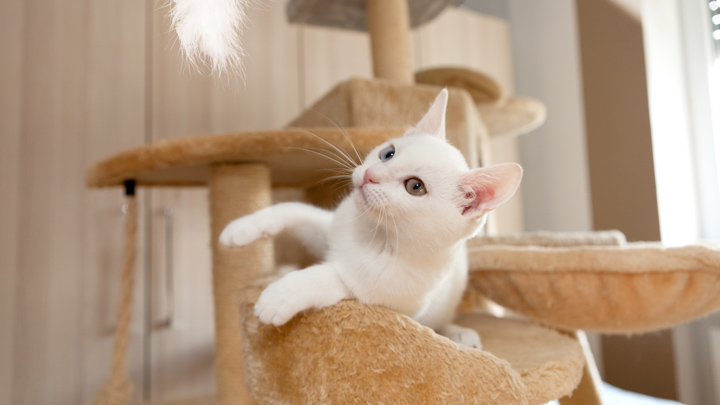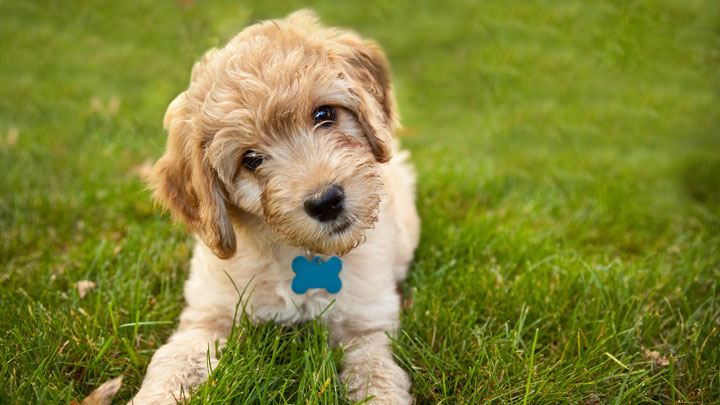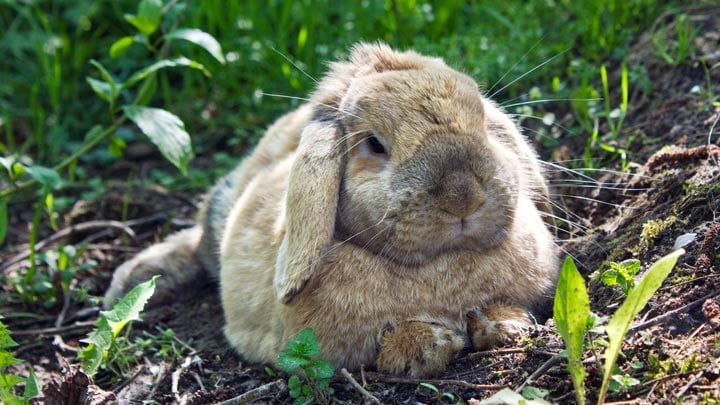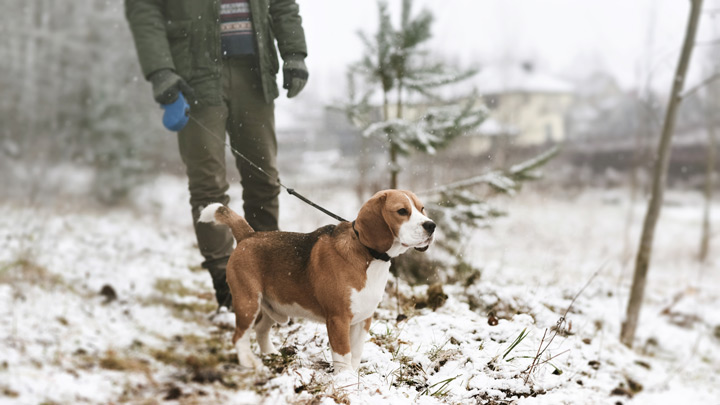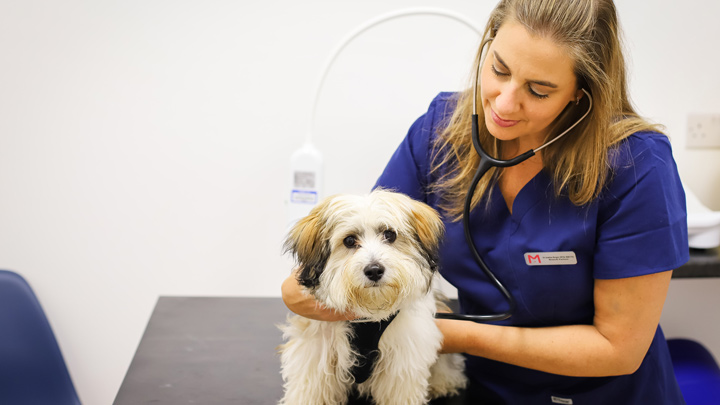Gland Expression
While anal glands are not something you often think about, they play an important role in your dog’s health.
These glands release a smelly fluid which helps your pet to mark their territory and communicate with other dogs. But sometimes they can become blocked and infected. At Medivet our clinics can help with routine gland expression, making sure your pet stays comfortable and healthy.
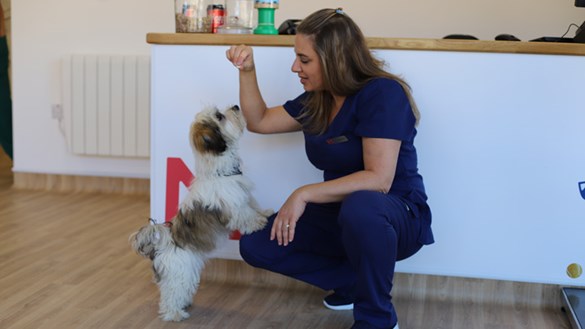
What are dog anal glands?
Your dog’s anal glands are two pea-sized sacs that sit just inside your dog’s bottom either side of their anus. If you think about the anus as a clock face, they sit roughly at 4 and 8 o’clock. They hold a strong-smelling fluid that dogs naturally release when they poo. The smell is unique to them and can help them mark their territory. They might also express some when fearful or stressed.
While most dogs manage just fine without us even noticing them, sometimes, they can become inflamed or blocked, causing your pet discomfort. If you notice your dog scooting along the floor or licking their bottom a lot, it could be a sign they need a little extra help.
Understanding anal gland problems
Your dog could go its whole life and you’ll never have to think about their anal glands but in some cases, they can cause problems. If they get blocked, impacted or infected they can cause your pet pain and potentially lead to more serious health conditions.
They’re a common issue for dogs, affecting millions of animals worldwide. Regular gland expression, if your dog needs it, can prevent a build-up of fluid and keep your dog happy.
Causes and risk factors
There are several causes of anal gland problems and some dogs are more prone to these issues:
- Insufficient emptying – Ideally your dog will empty their anal glands completely every time they poo but if their stools are too soft it might not happen fully and lead to a build up
- Chronic diarrhoea – Frequent loose stools can stop your dog from naturally expressing their glands during bowel movements
- Infections – Bacteria can get trapped inside the glands leading to infection and abscesses which may need veterinary treatment
- Obesity – If your dog is overweight, they may have more difficulty naturally expressing their glands because of excess fat in the area
- Allergies – Some dogs with food or environmental allergies may have trouble fully expressing their glands due to a build-up of chronic inflammation
Smaller breeds are more commonly affected than large ones and diet can have a big impact – a diet lacking in fibre can result in softer stools and make it harder for your pet to fully express their glands. Age is also a factor. Older dogs may experience more frequent issues as their muscles weaken. Dogs with recurrent skin conditions may also be more prone. This is because such conditions can lead to inflammation and irritation around the anus.
Diagnosing anal gland issues
Scooting on their bottom to relieve discomfort is one of the most common signs of blocked anal glands in your dog. They might also bite or excessively lick the area. You may notice swelling and redness or your dog having trouble sitting comfortably because of the pressure from full or irritated glands. They may also struggle to poo.
You may notice a foul odour – the liquid they excrete often has strong fishy smell and if there’s a blockage or infection your dog might leak it in your home. You might also see pus or discharge around the anus.
If your dog is showing these signs and you’re worried they might have an issue, it’s best to take them to the vet to be sure. There are lots of causes and your vet is the right person to diagnose it, decide the correct course of treatment and get them back to full health.
Treatment and management
Your vet will carry out a physical examination by gently palpating the anal glands to check for fullness and expression. This is the simplest way to see if they’re working normally or need treatment.
They may try manually expressing your dog’s glands to ease their symptoms. If the fluid is thick, pus-filled or bloody it could indicate an infection or a more serious problem. In the case of recurring infections or abscesses they might order cultures as well as prescribe antibiotics or topical steroid treatments. They may also order a biopsy to rule out tumours.
In severe cases, your dog may require surgery to remove the glands entirely.
No matter the situation, your vet will guide you on the best treatment plan to help your dog feel better and get back to their happy, healthy self.
Preventing anal gland issues
While some dogs are just prone to anal gland problems there’s plenty you can do to reduce the chances of them occurring:
- Increase their fibre intake – A diet high in fibre can create firmer stools which press on the anal glands and empty them as they pass through
- Maintain a healthy weight – Overweight dogs are more prone to anal gland issues because excess fat in the bottom area can make it harder to empty them
- Exercise – Regular walks and activity can keep your dog a healthy weight, increase fitness and improve circulation
- Rotate proteins – Sticking to just one or two proteins in their diet can increase the chances of an allergic inflammatory response which can lead to chronic gland issues. Try mixing it up with different meats and fish
- Regular check-ups – Make sure they see your vet for regular wellness checks. Your vet can pick up and deal with any issues before they become more serious
Expressing your dog’s anal glands
While you can express your dog’s glands at home it’s best left to a professional like a vet or a qualified groomer. If you’re worried about your dog, take them to your vet for a check-up where they’ll be able to manually clear the glands and advise on the best course of treatment.
Most dogs never need their glands expressed and even if they do a vet really is the best person for the job. If it needs to be done regularly, for example, every four to six weeks, your vet may be able to show you how so you can do it yourself at home.
Frequently Asked Questions
Aside from it not being the most pleasant of jobs to do, it really is best left to a vet who understands your dog’s anatomy and knows where to press. If you think your dog has problems with their anal glands, book an appointment at your nearest clinic and get them checked out.
As we said, your vet is the right person to manually express your dog’s glands. How often this should be done depends on their individual circumstances. The majority of dogs will never have any problems. For those that do the frequency could be as little as once a year or as often as every few weeks.
Yes, but ensuring your dog receives a healthy and varied diet can reduce the risk. Include high fibre foods like carrots, pumpkin, apples (without the seeds), blueberries and sweet potatoes. Wholegrains like brown rice and oats are also fibre rich.


